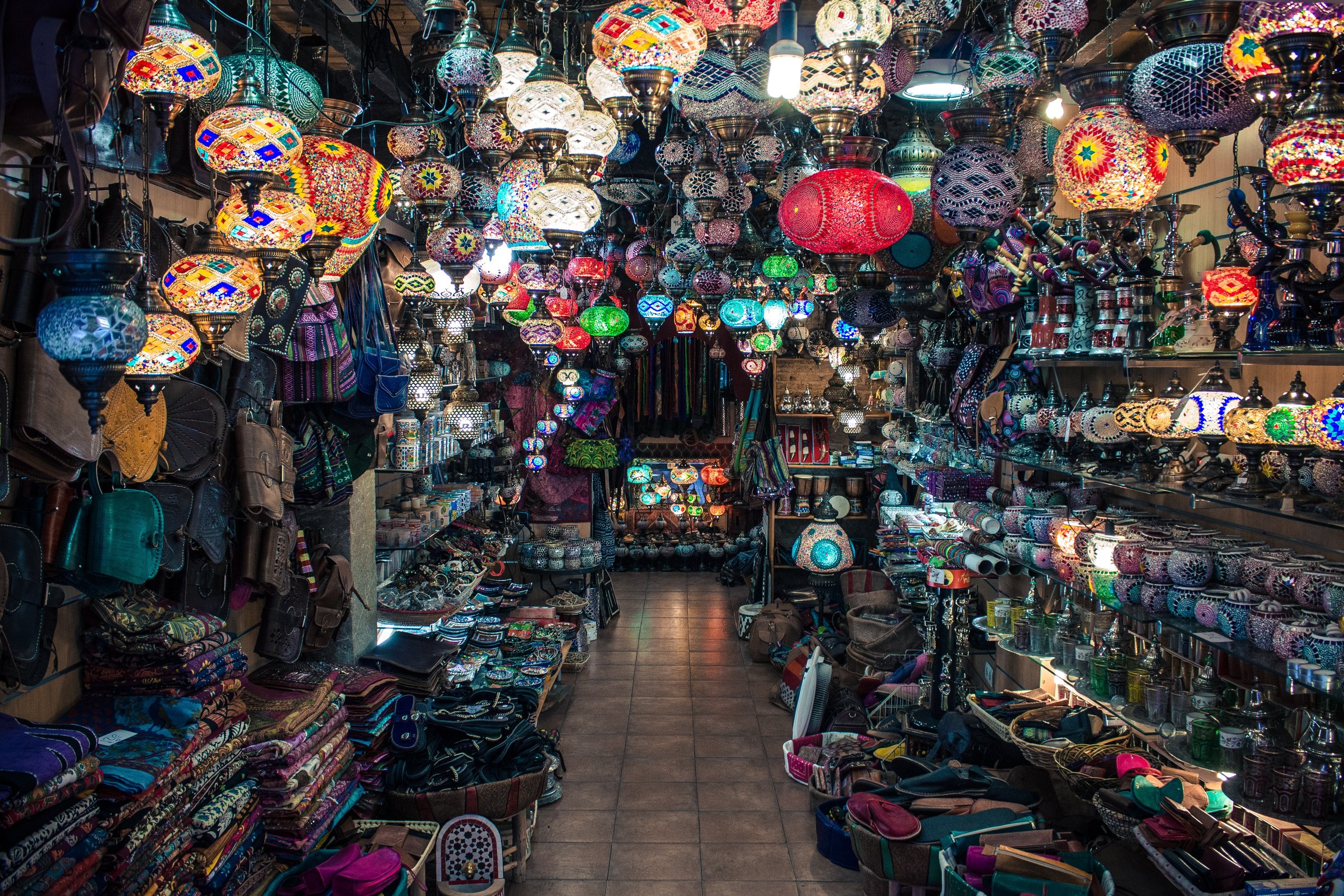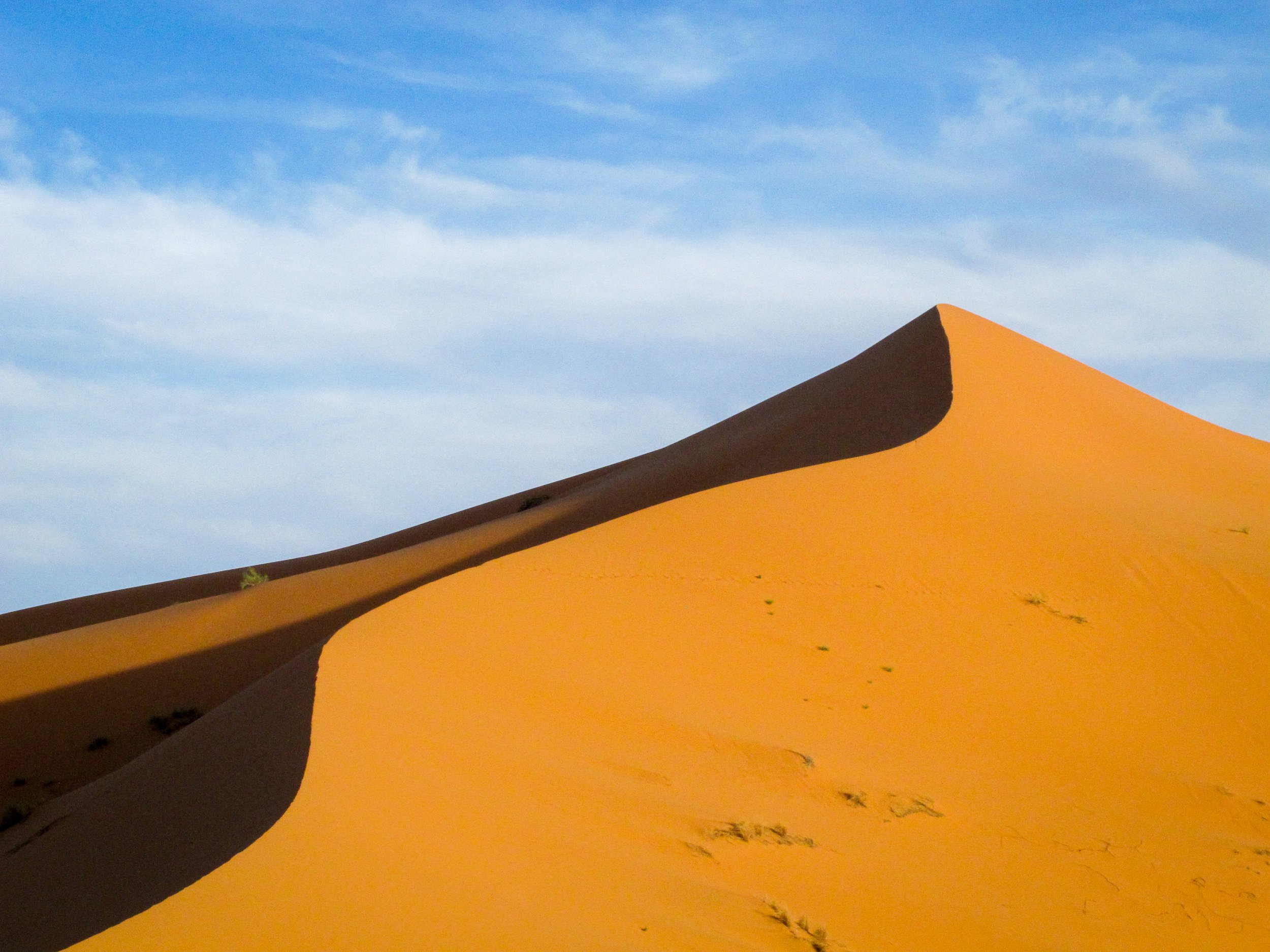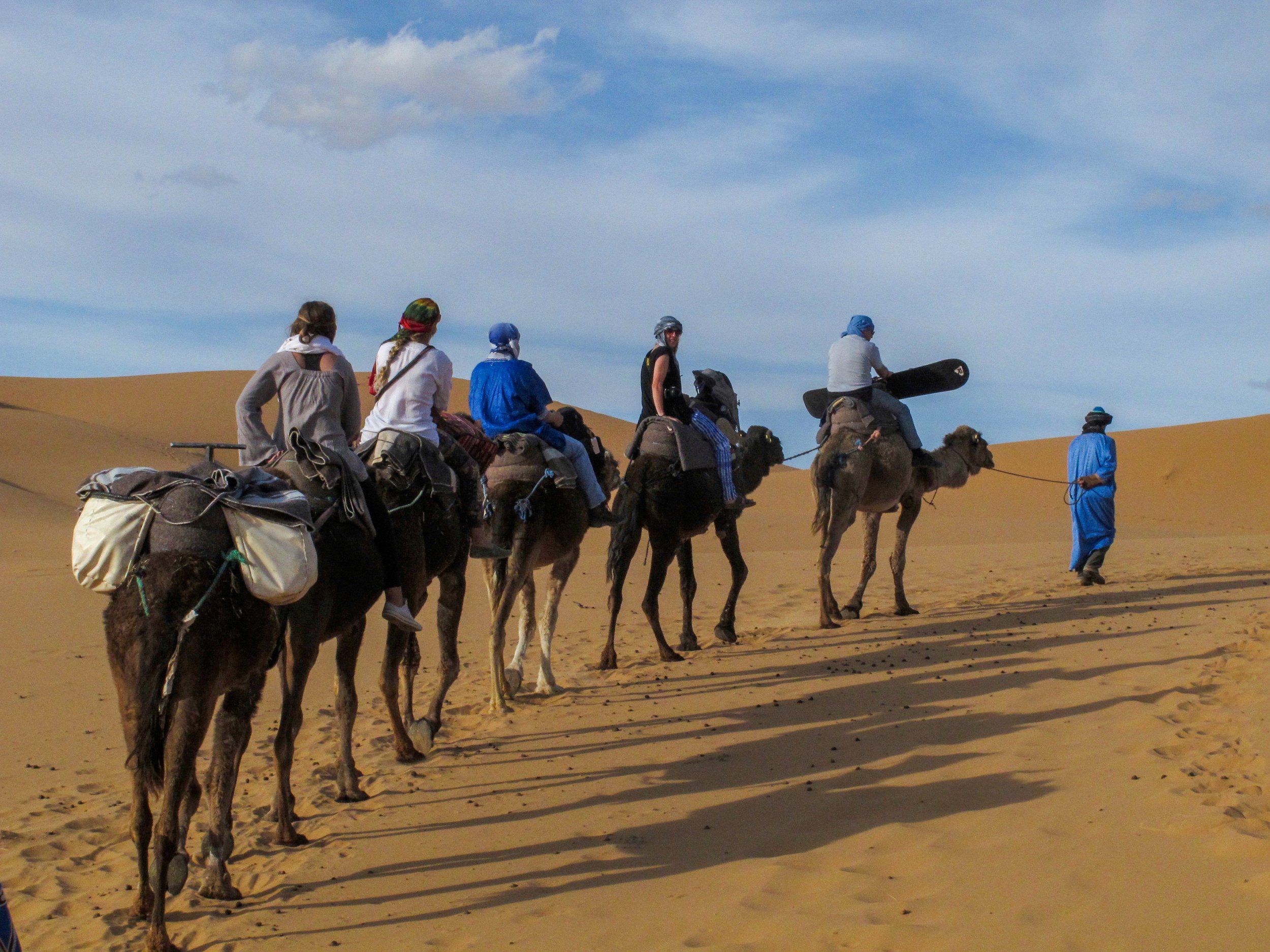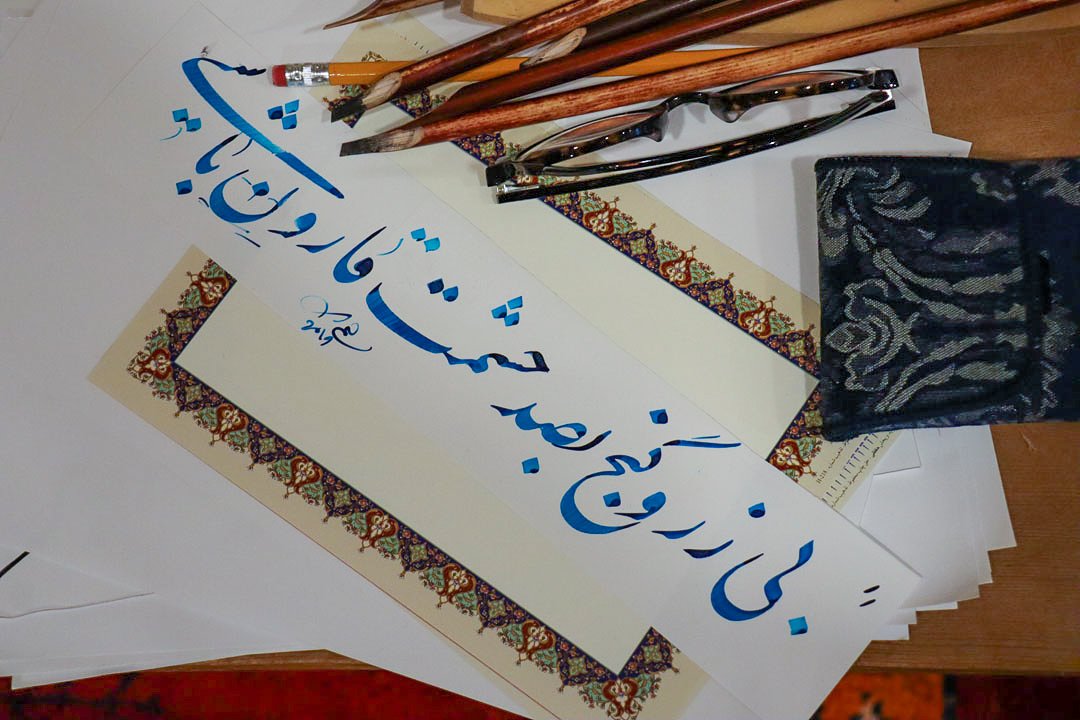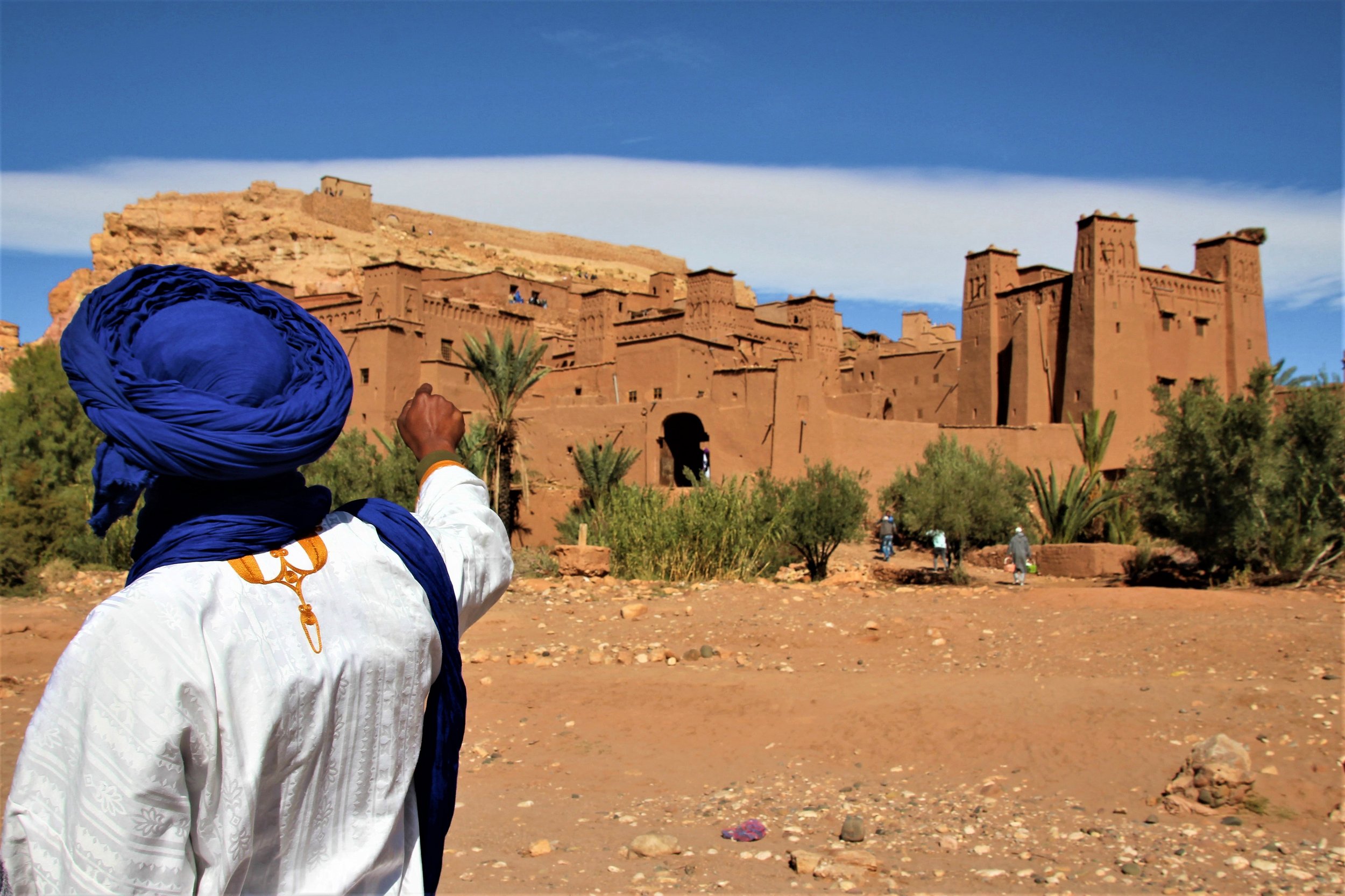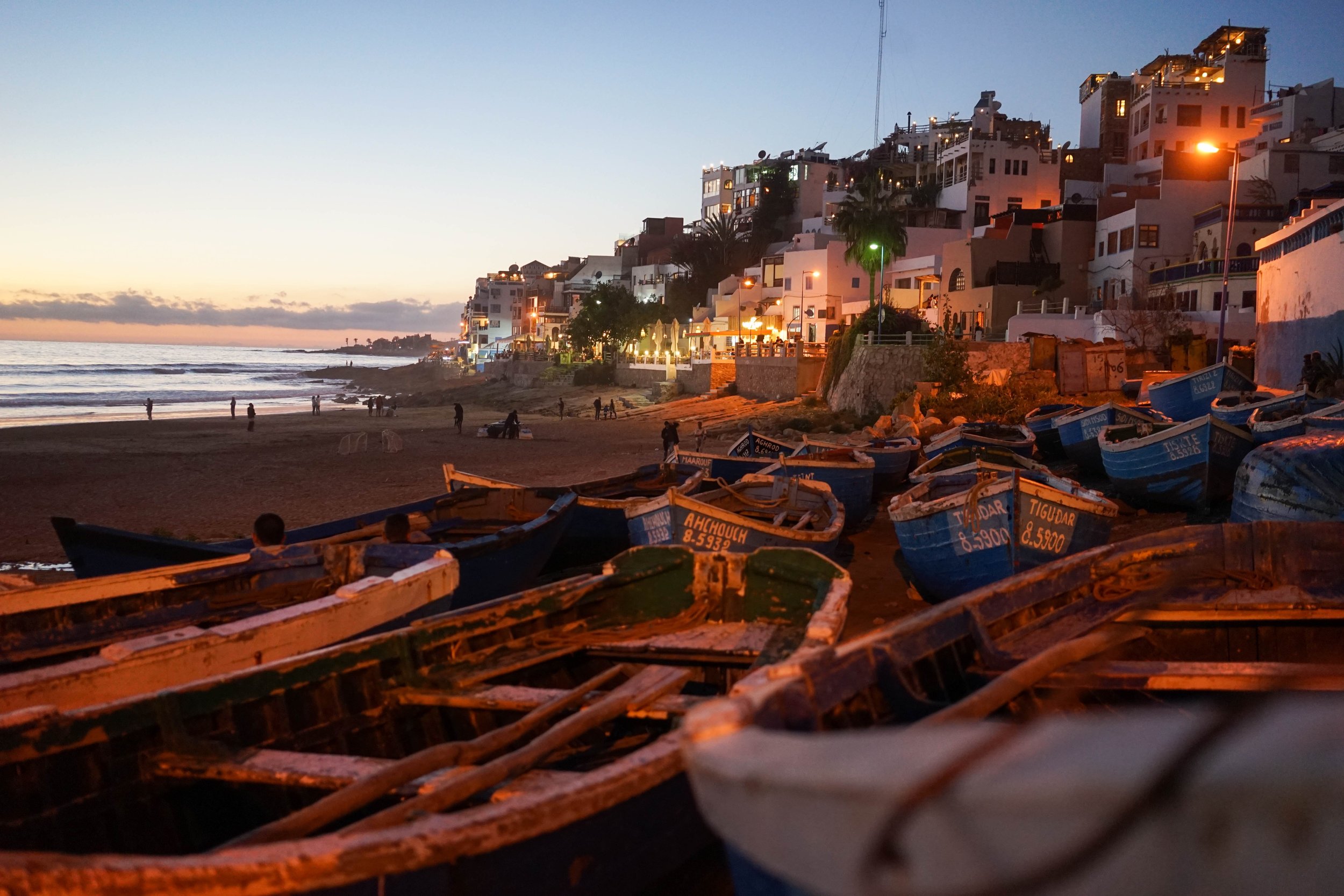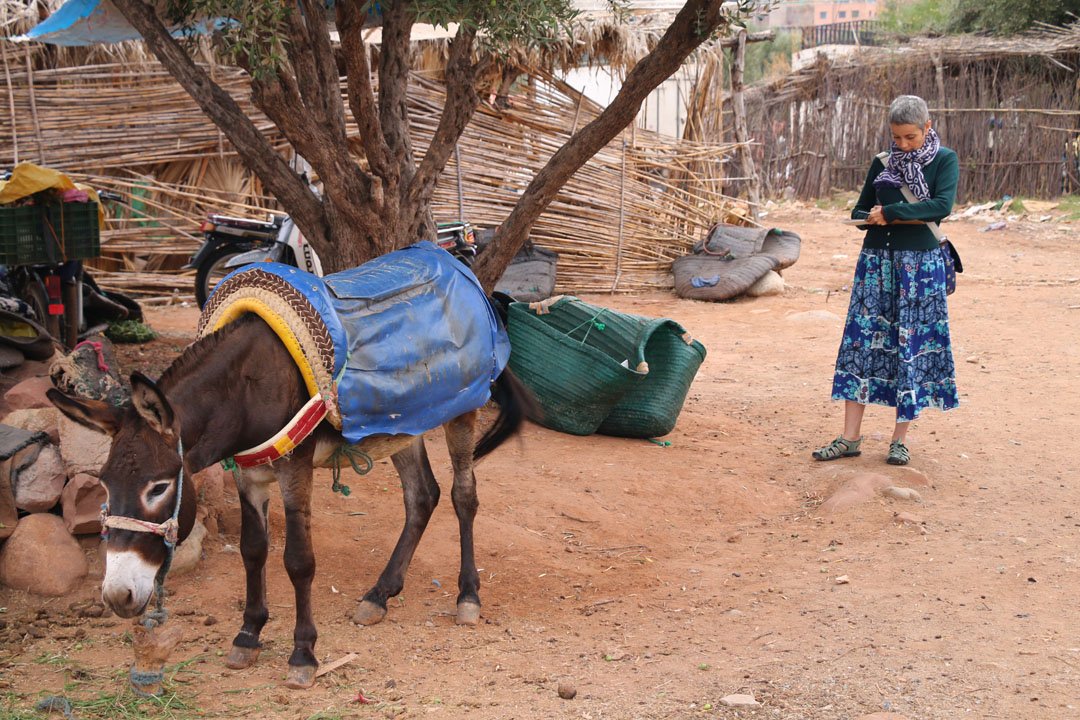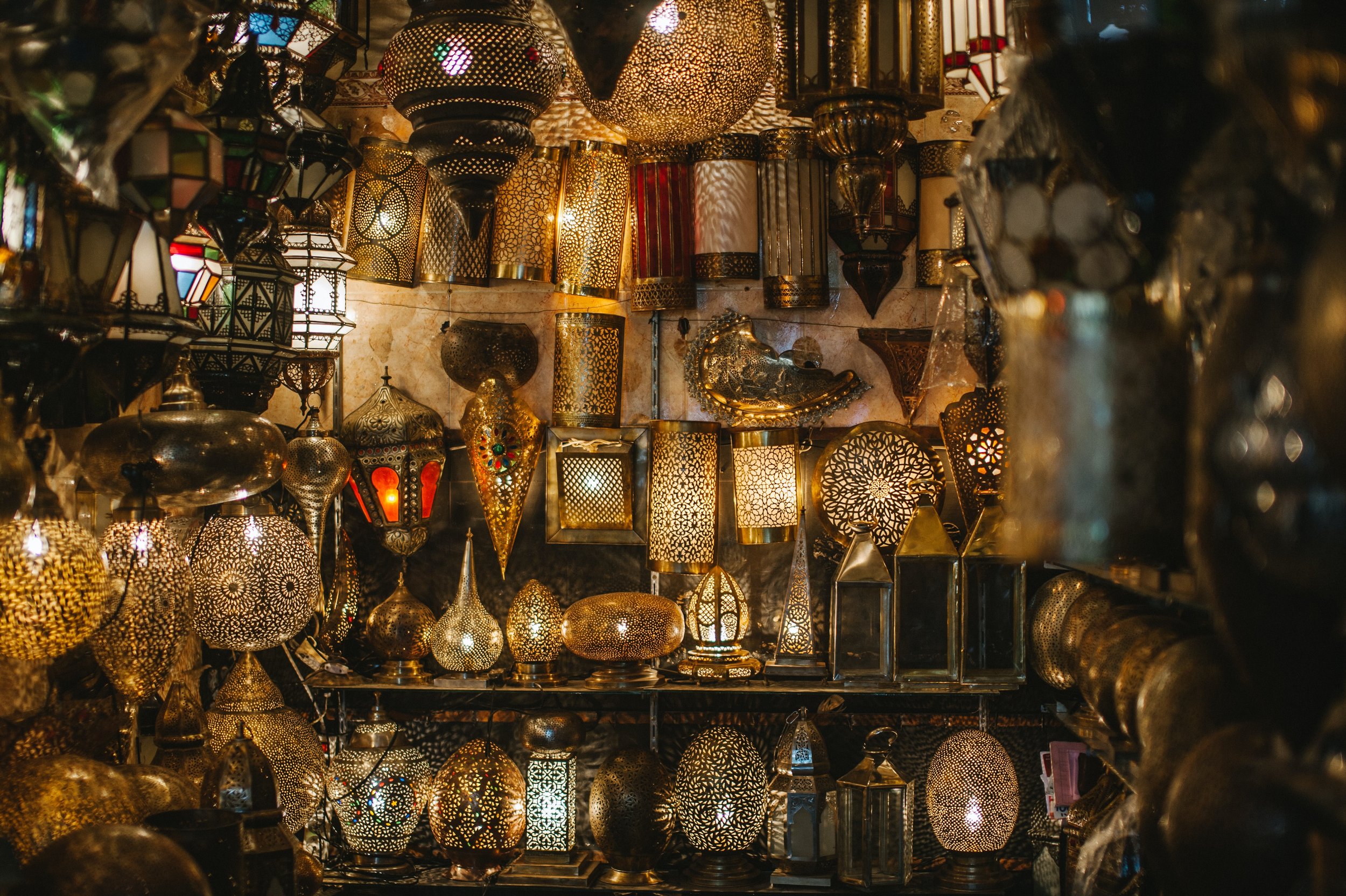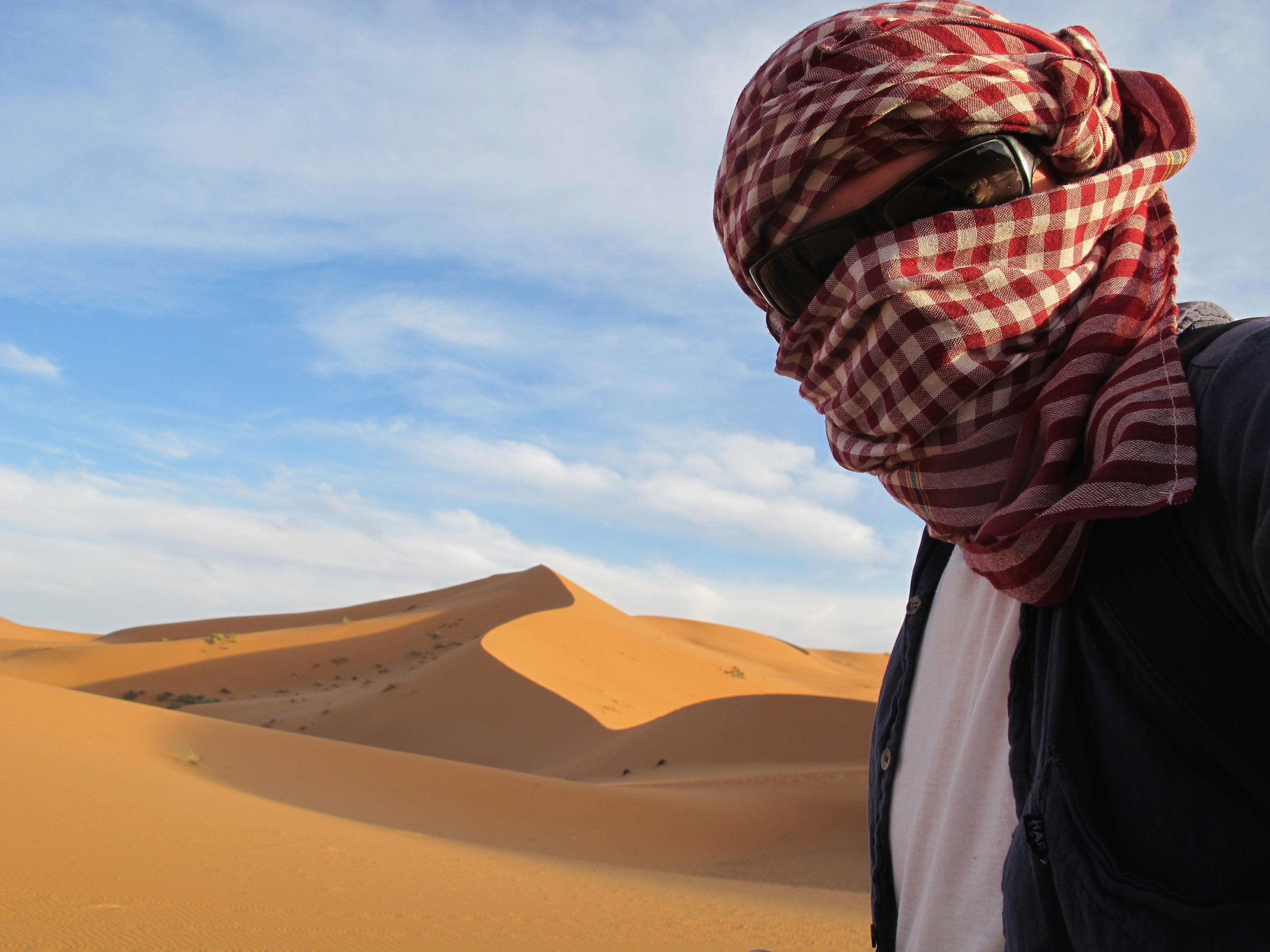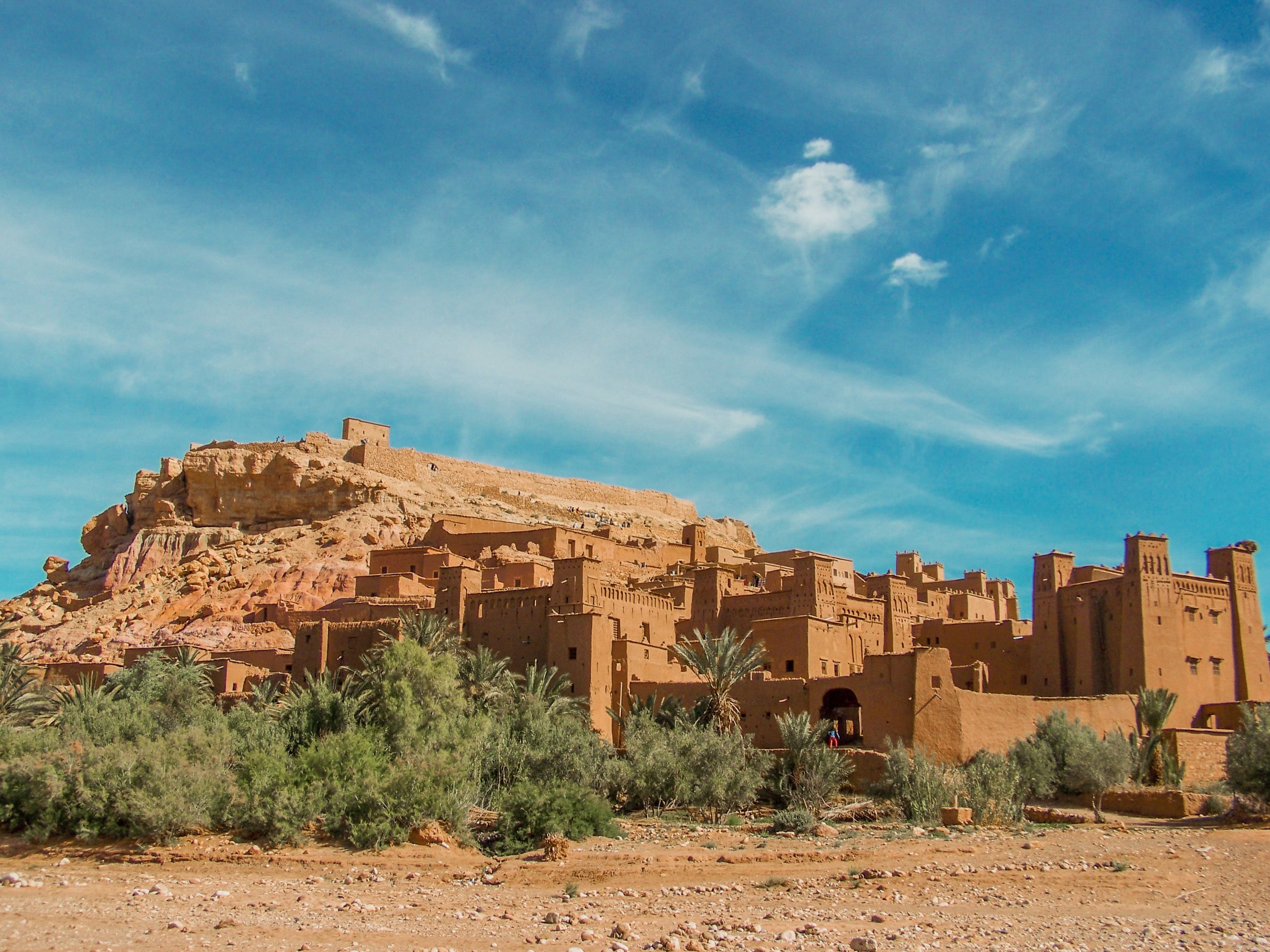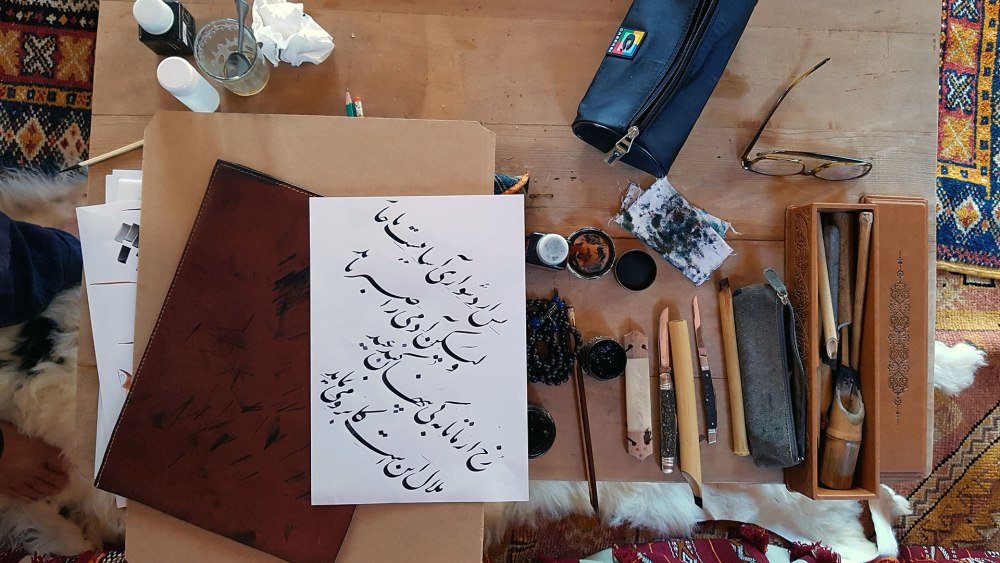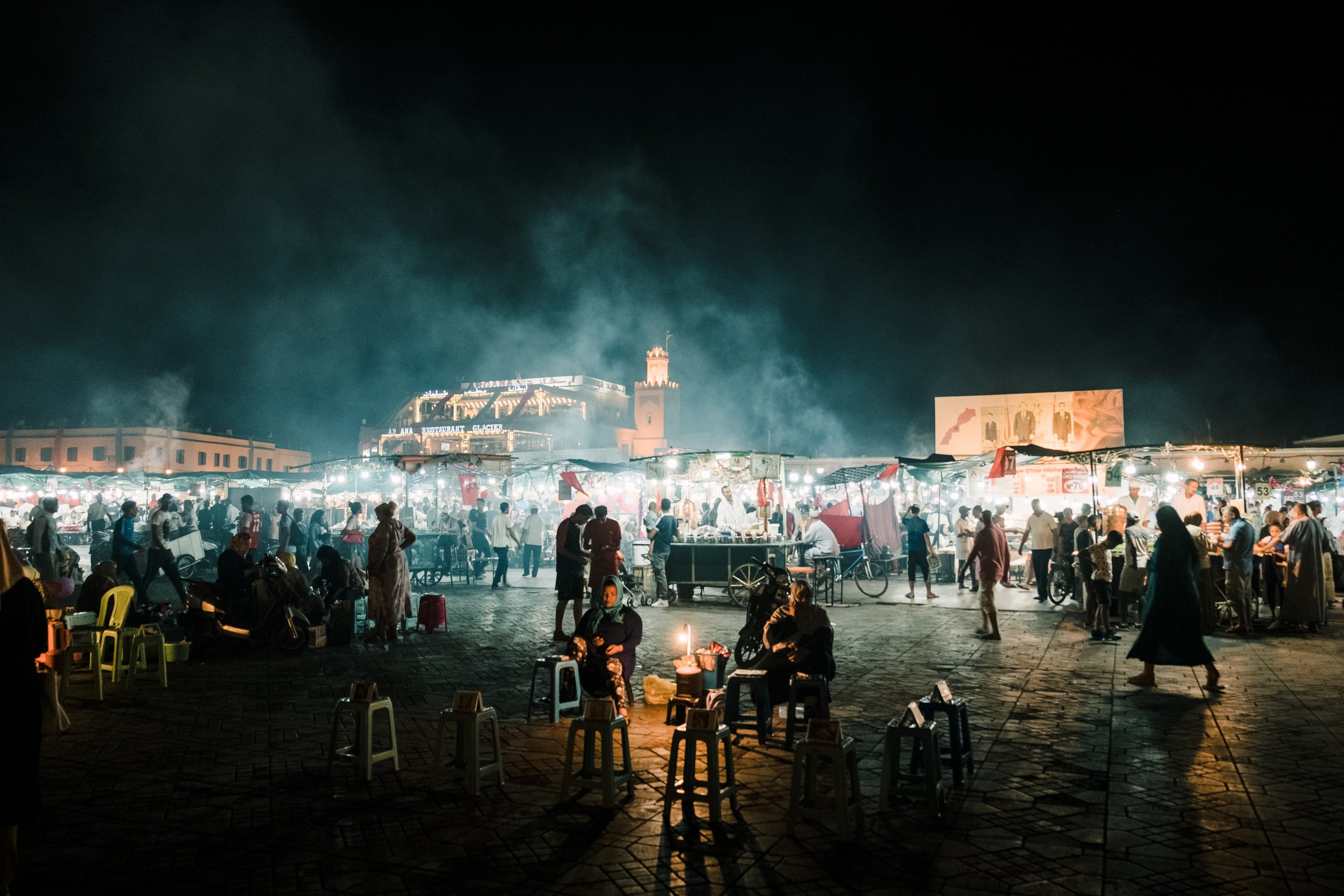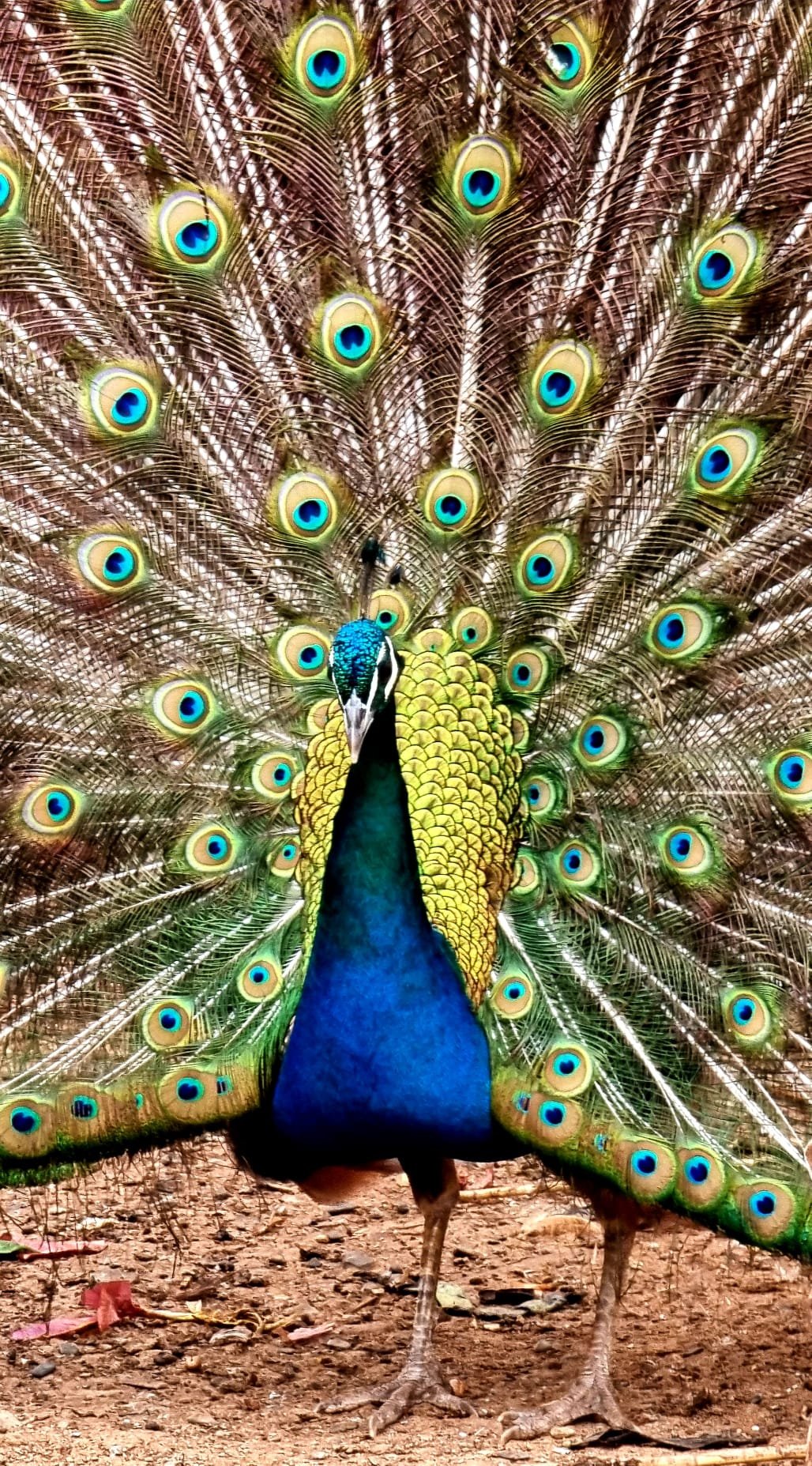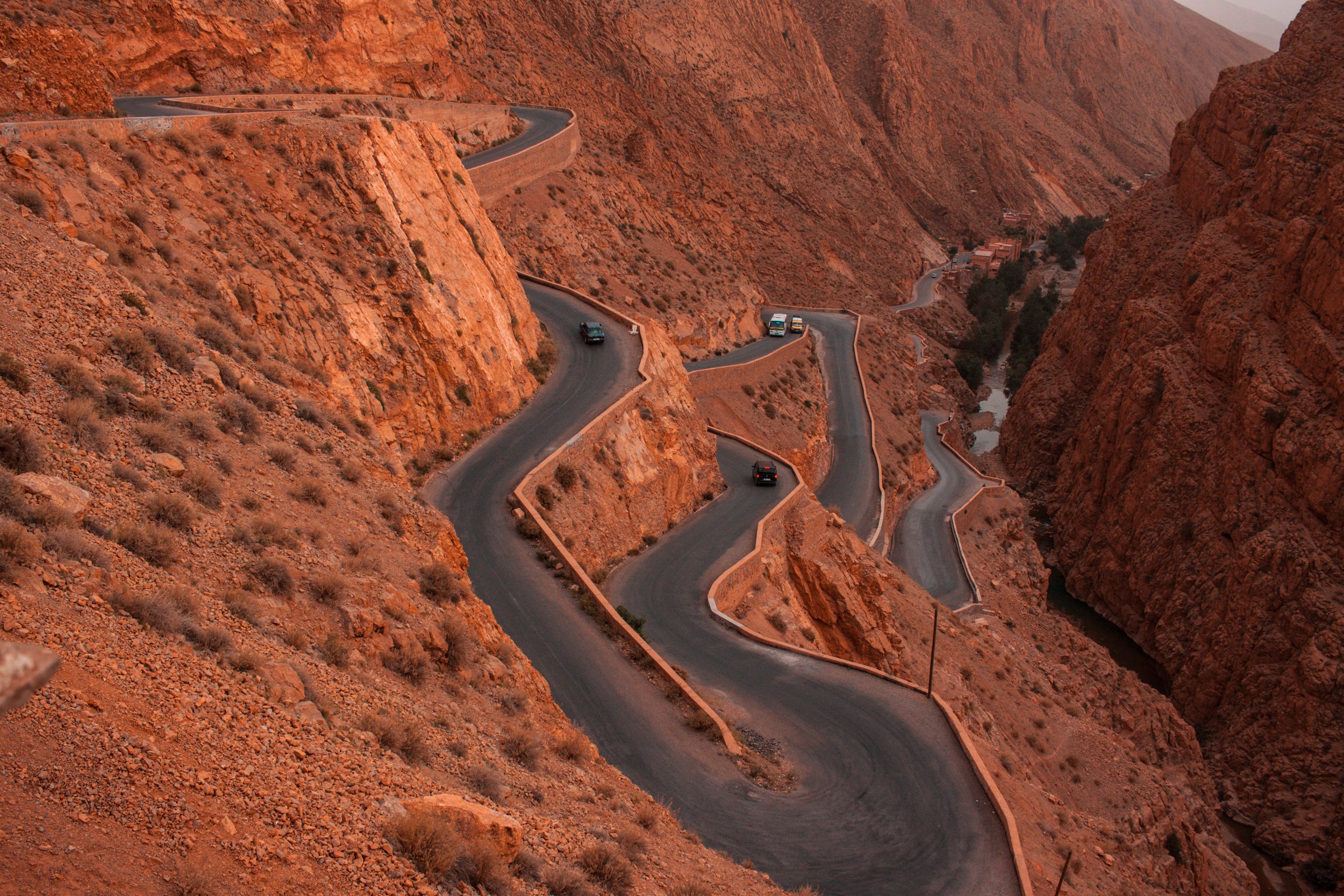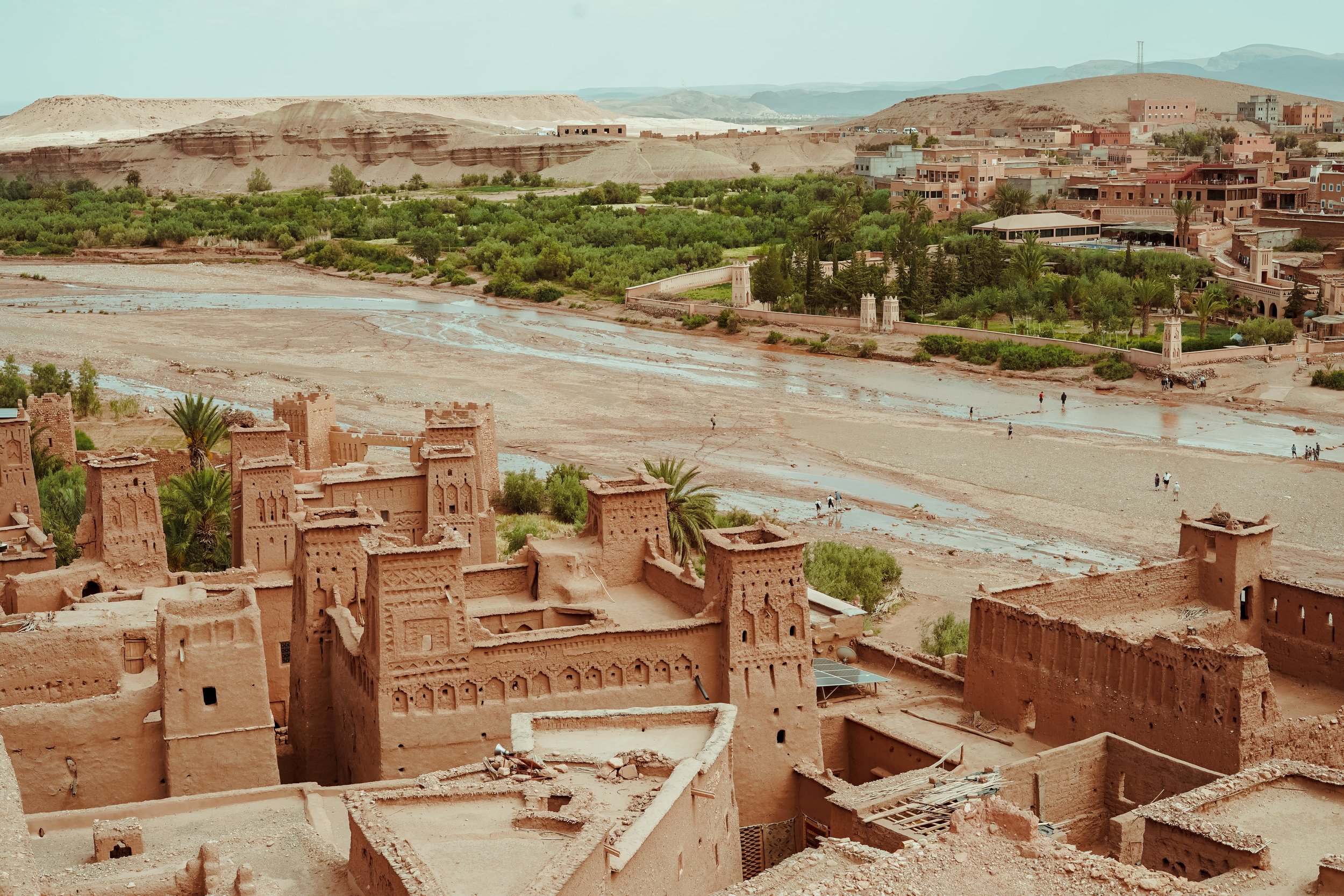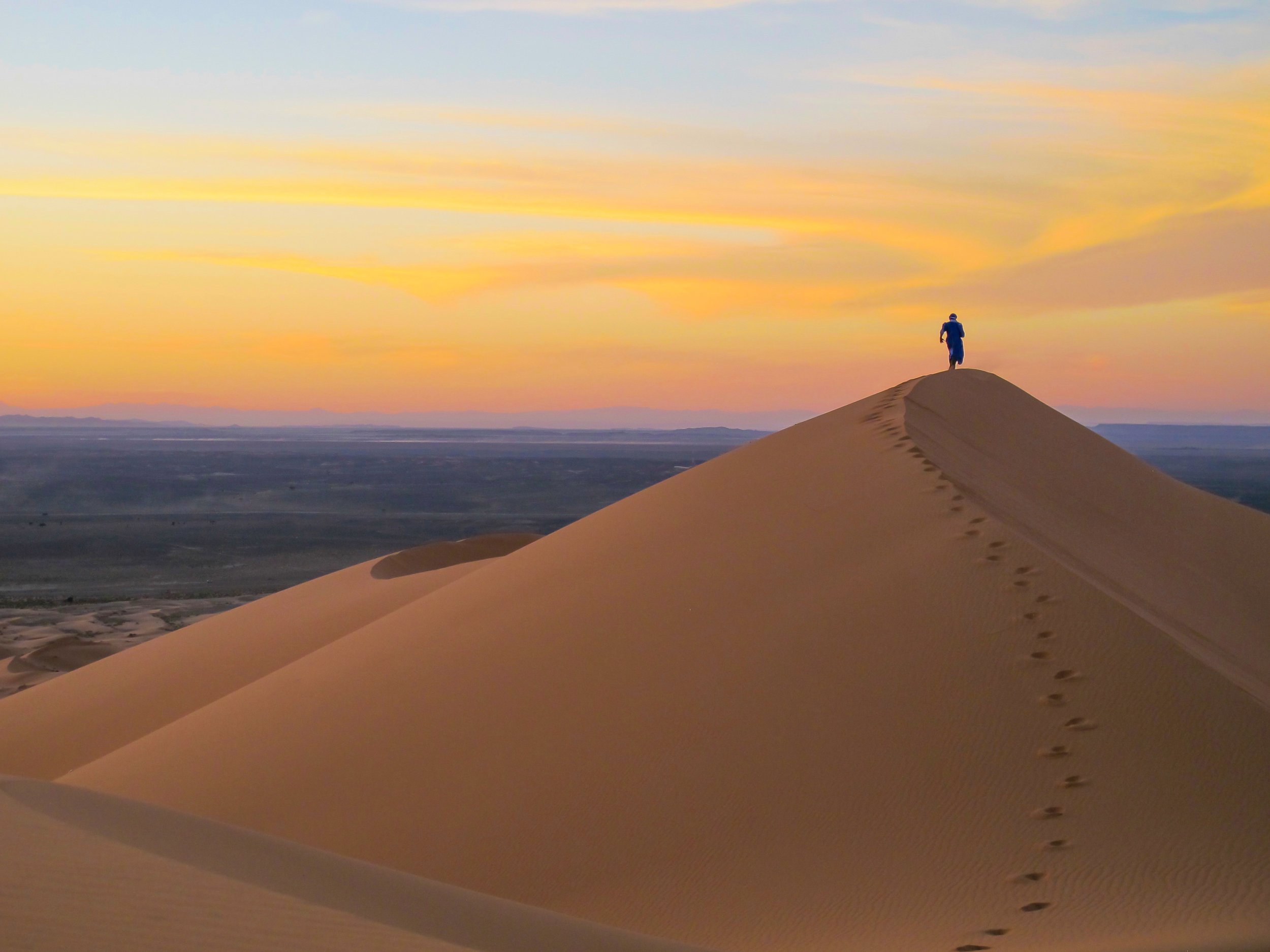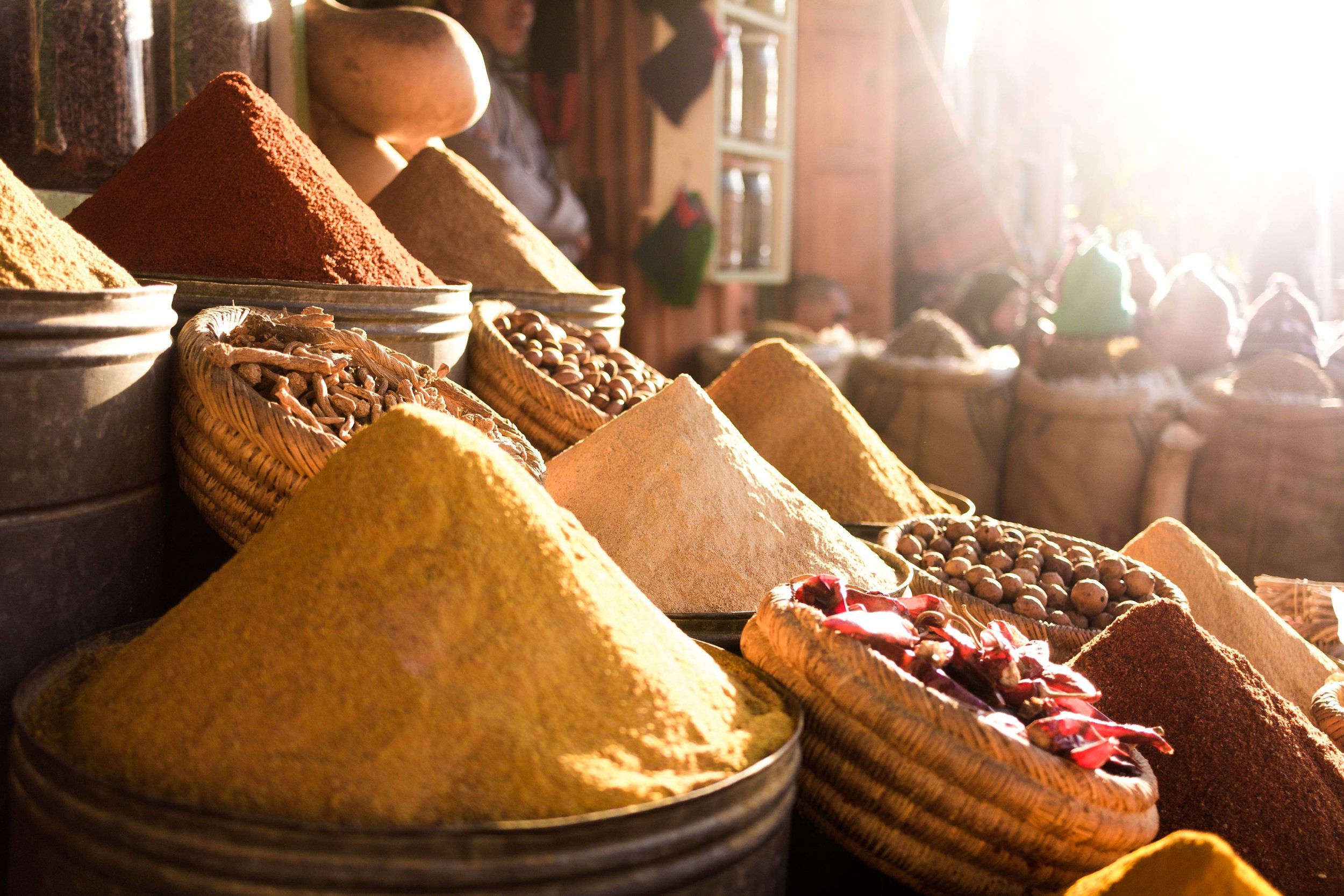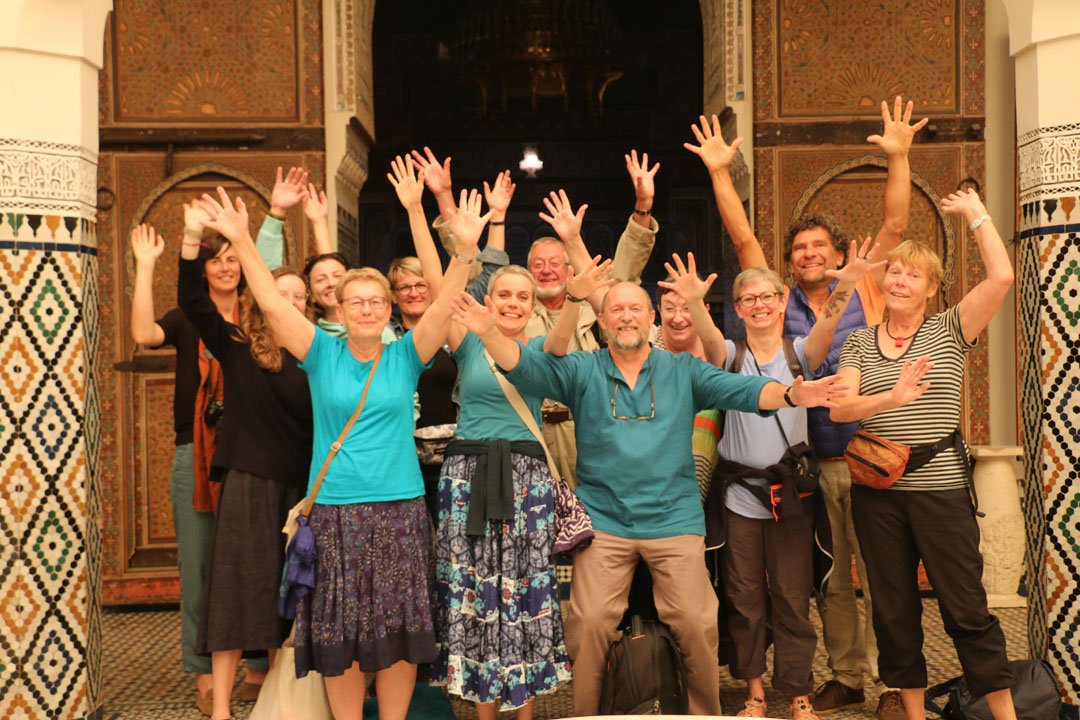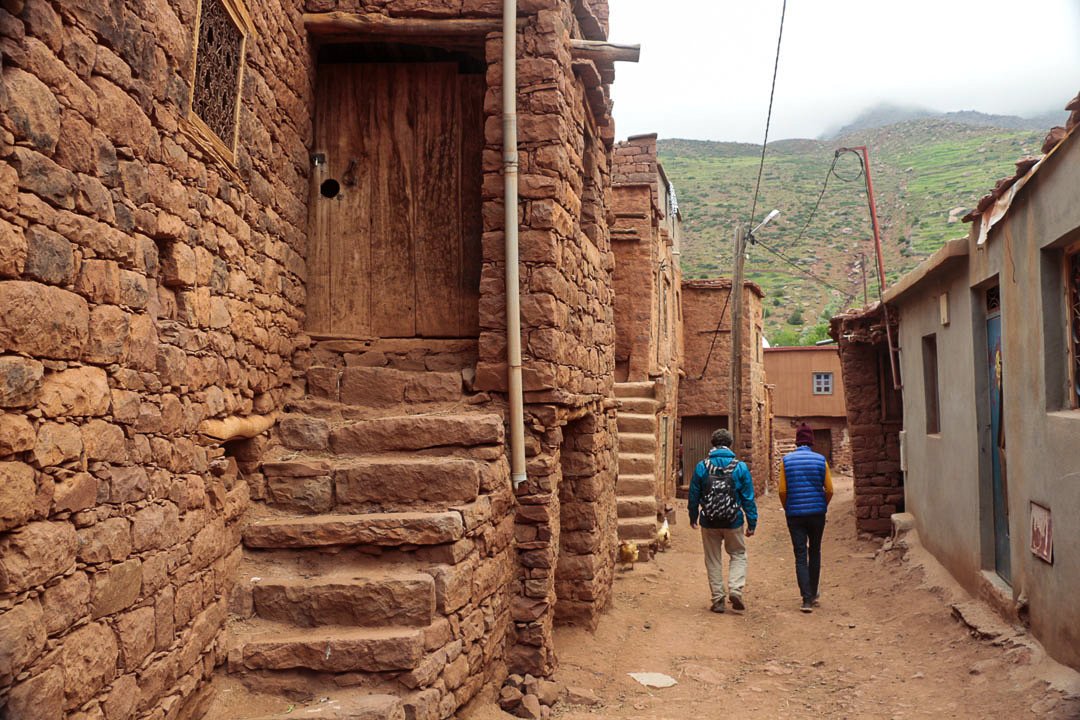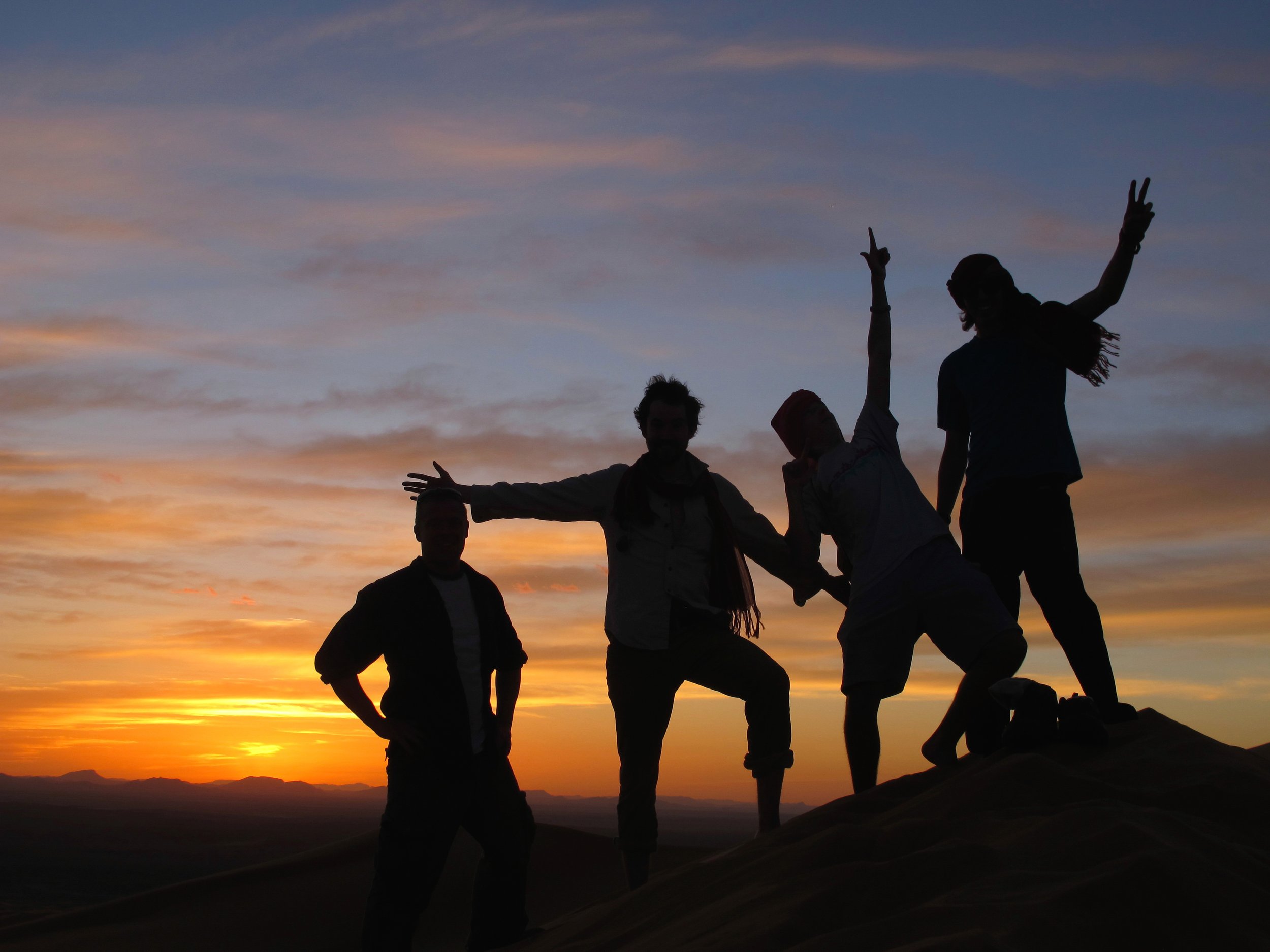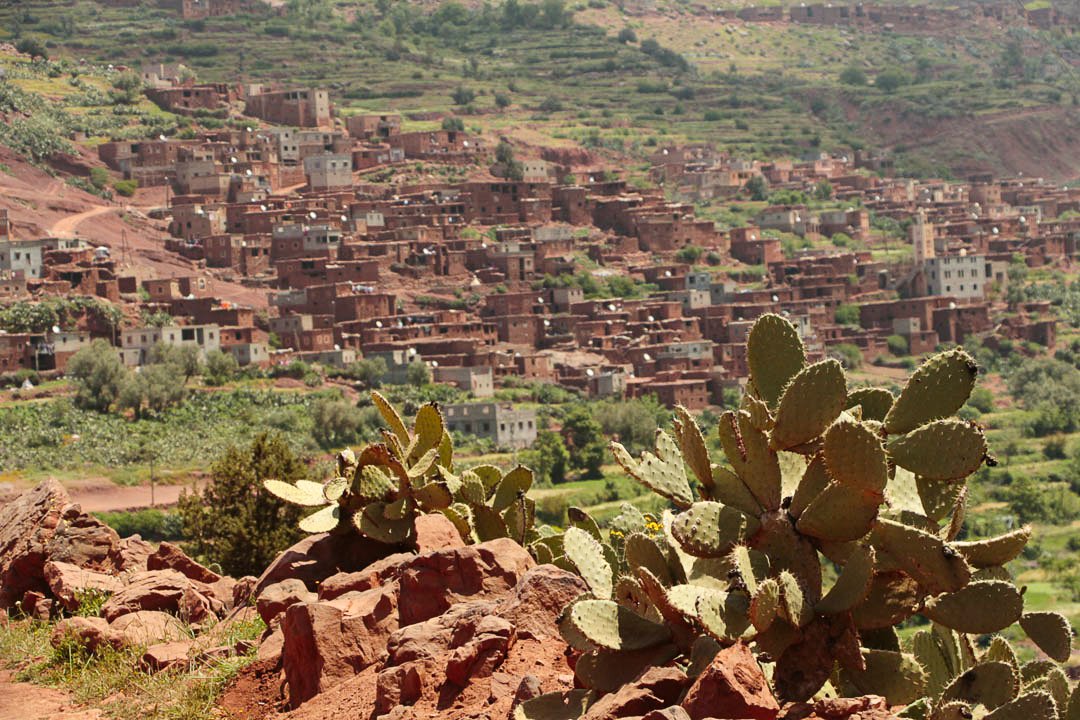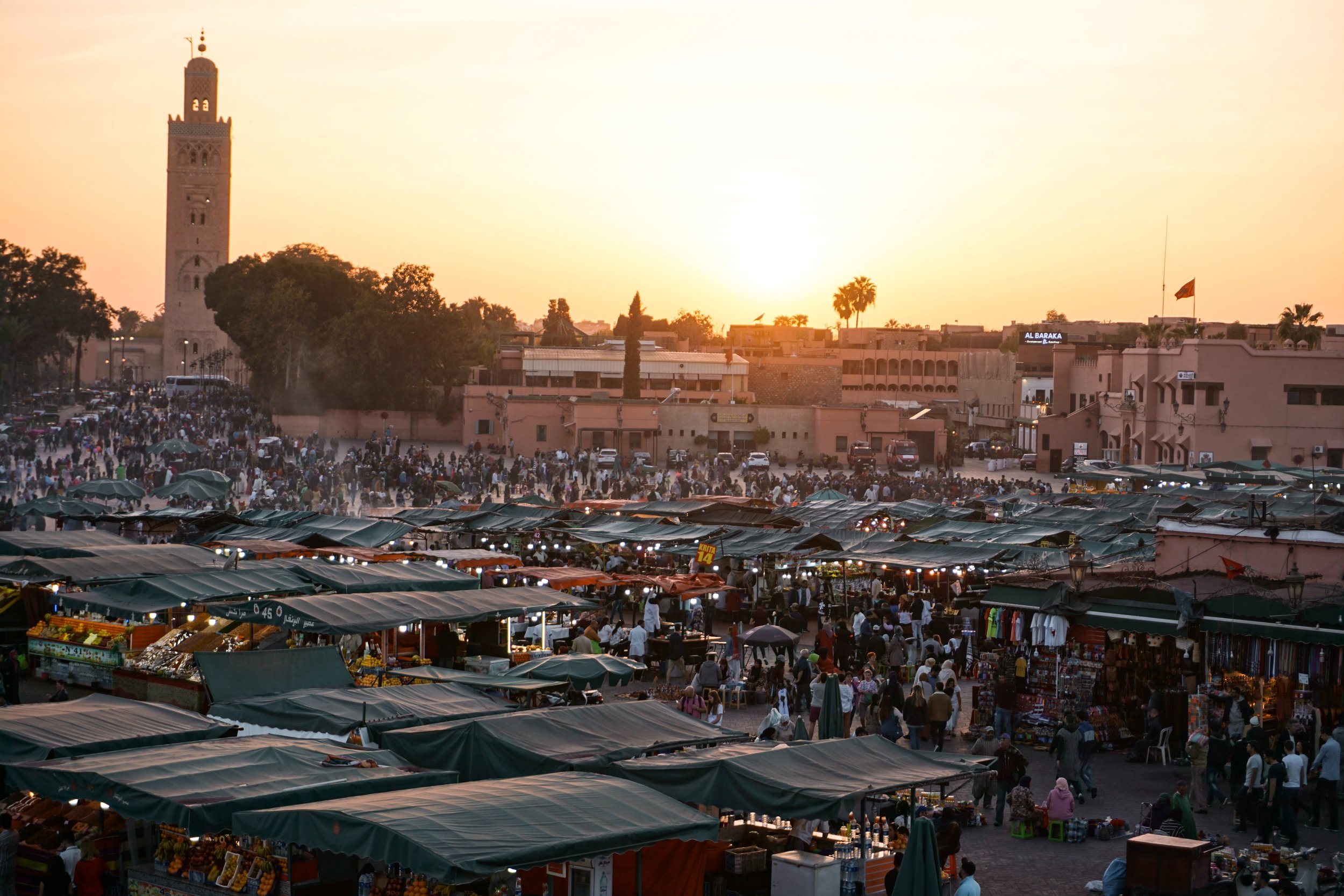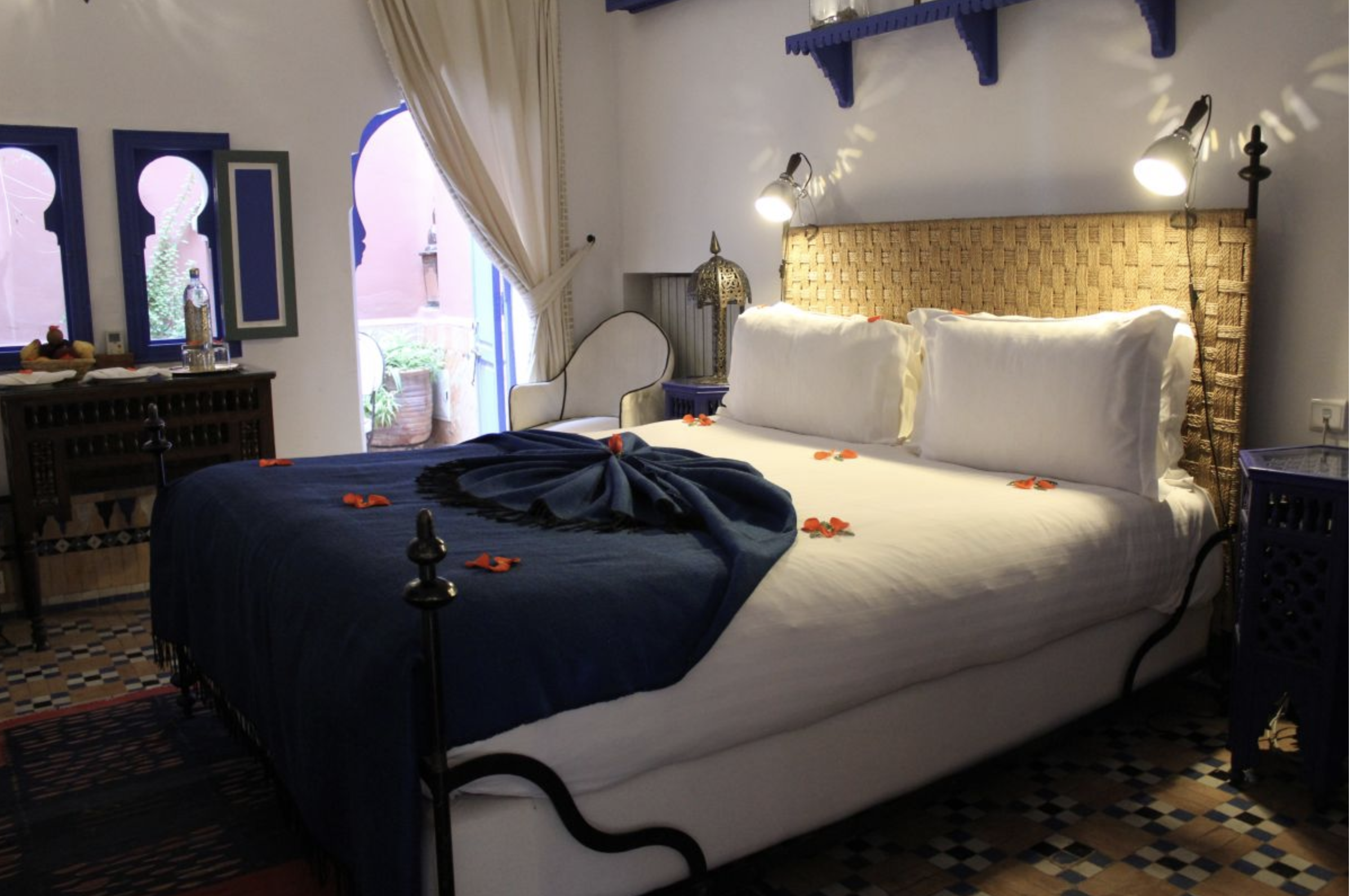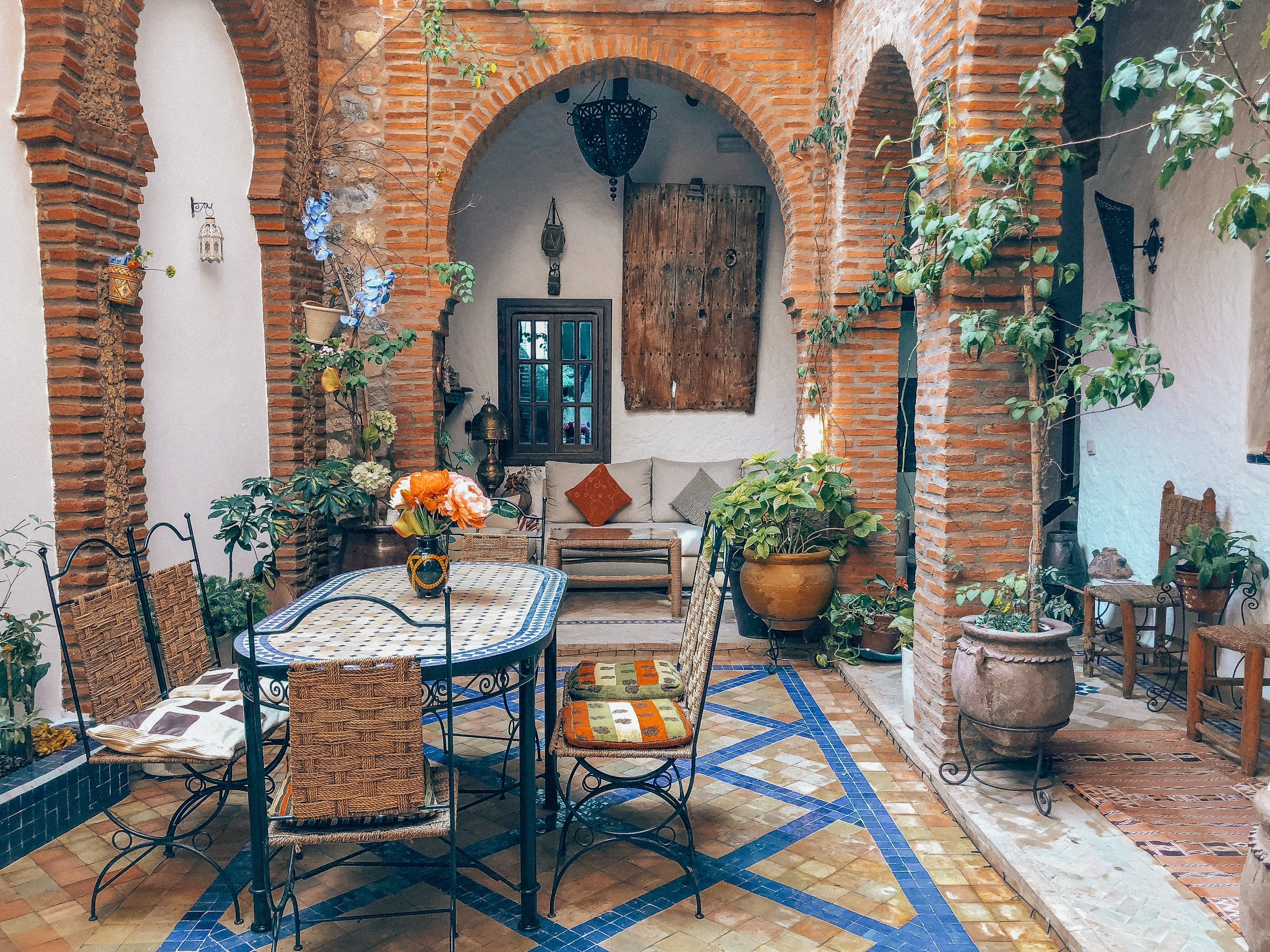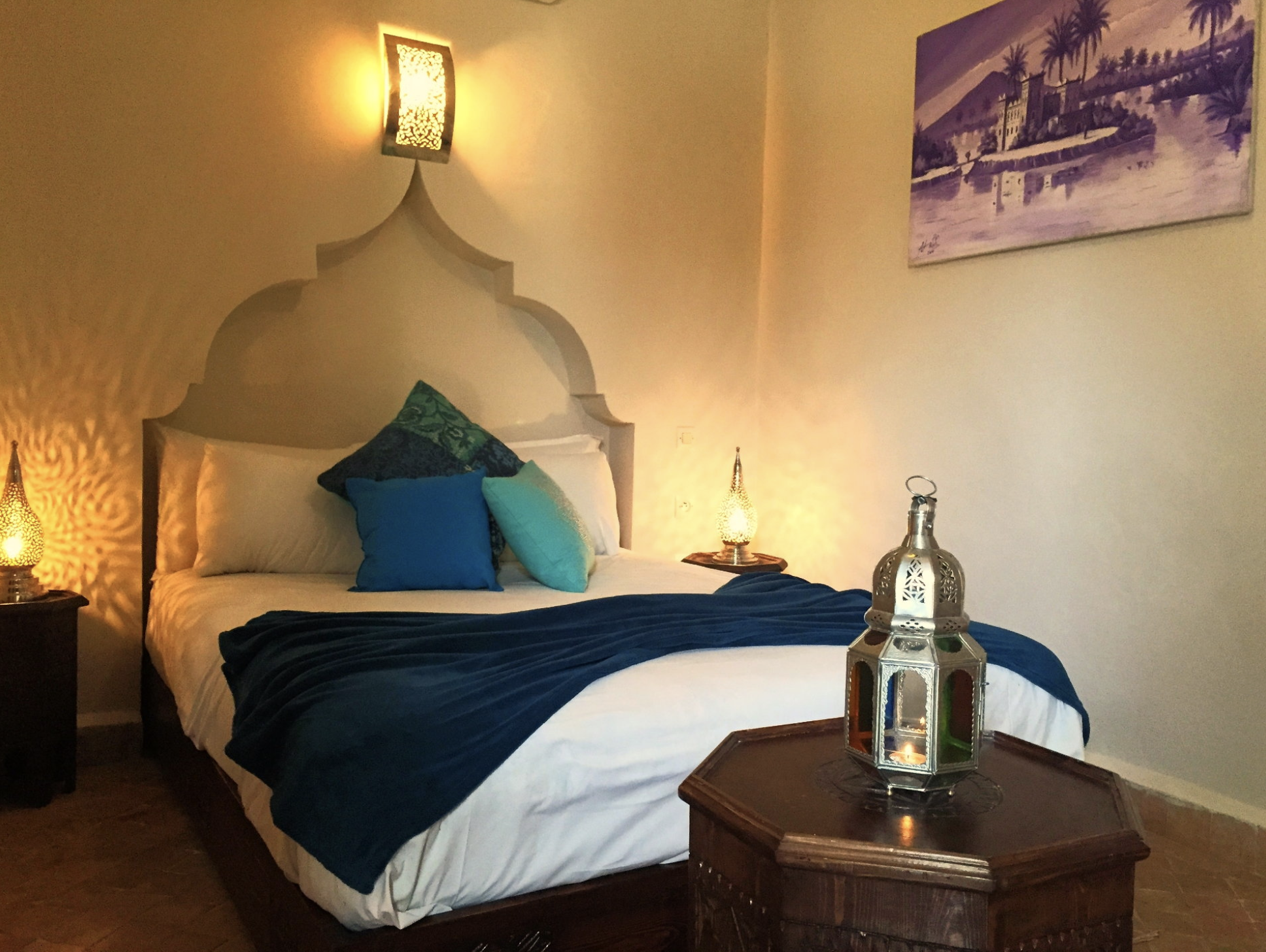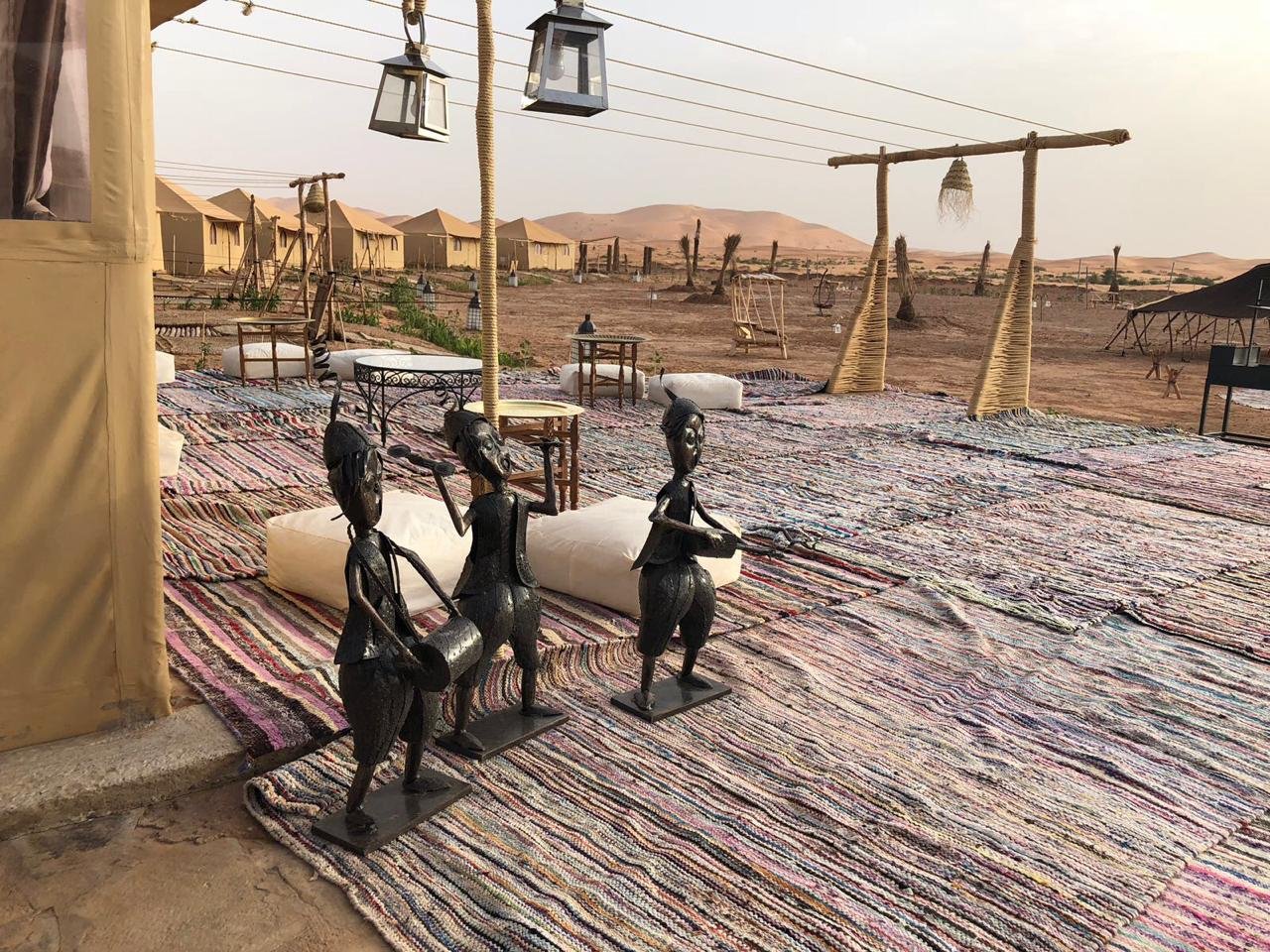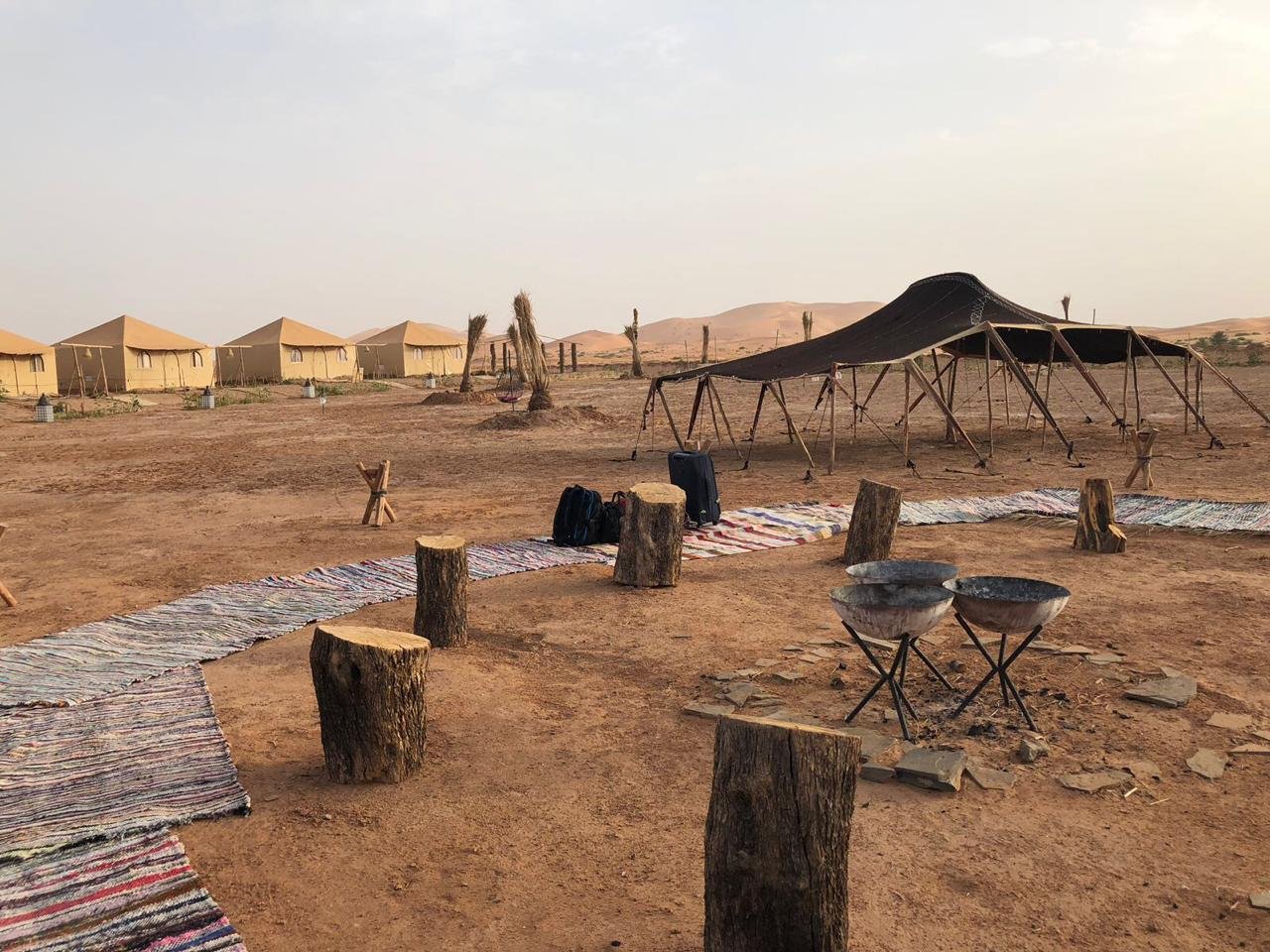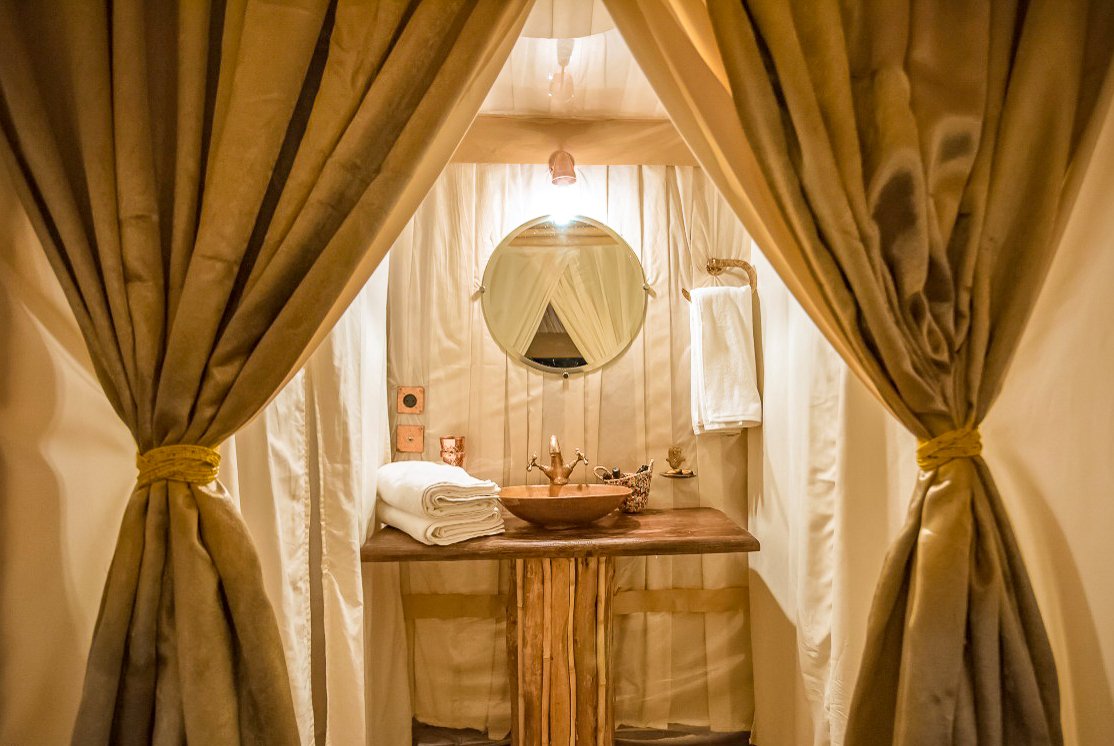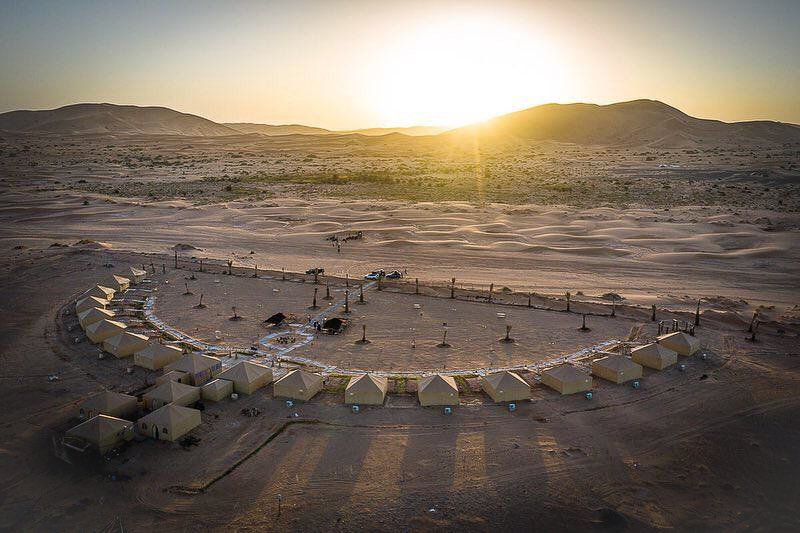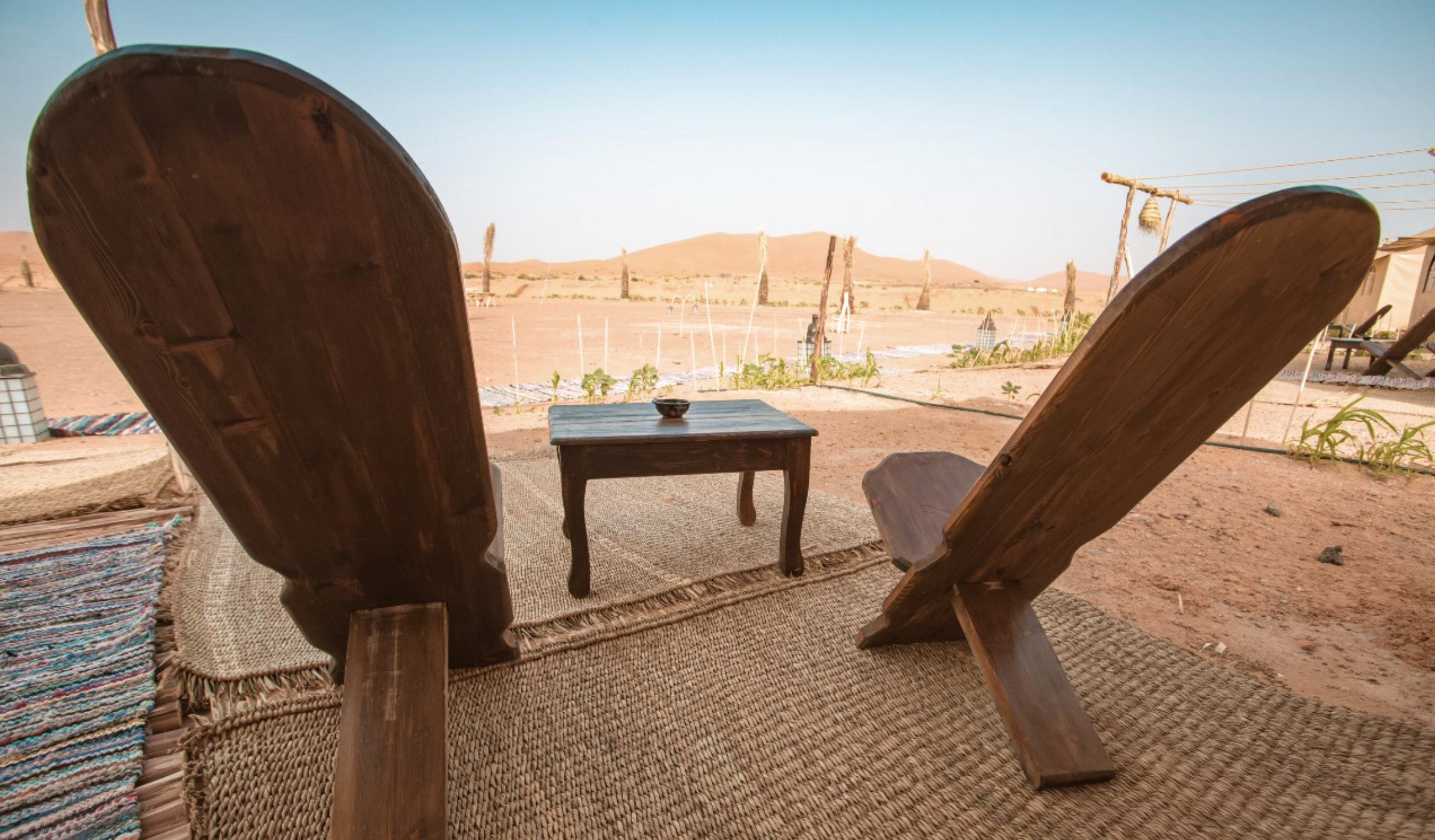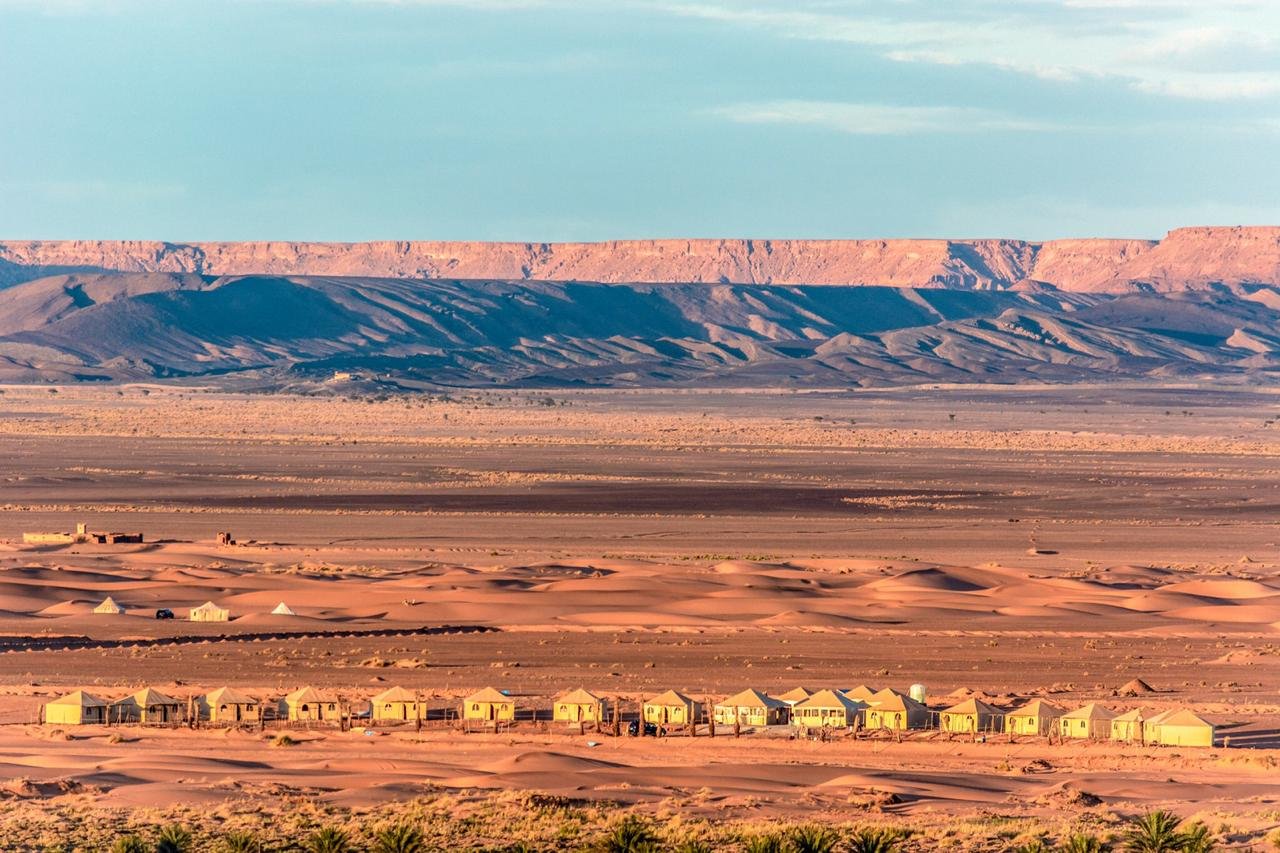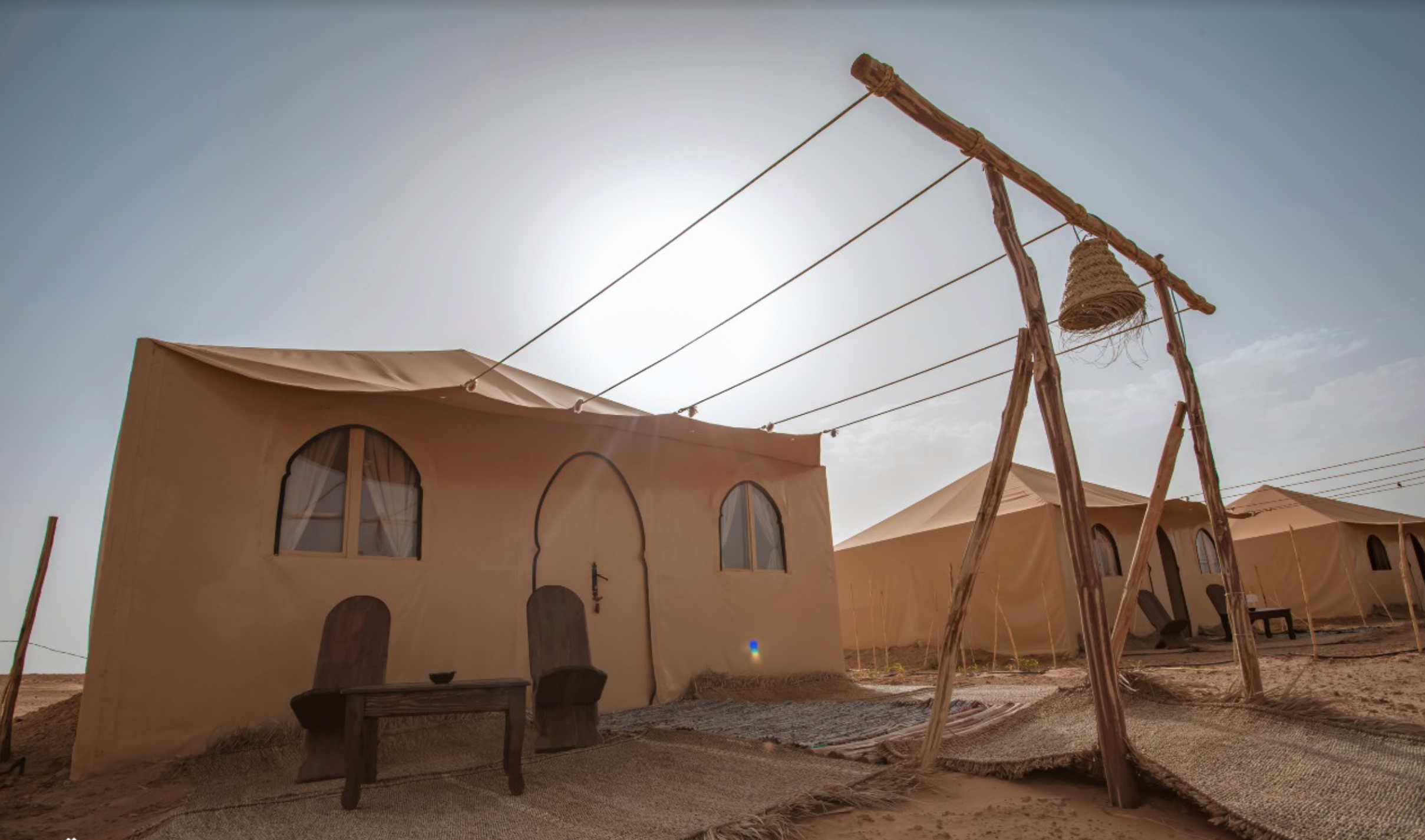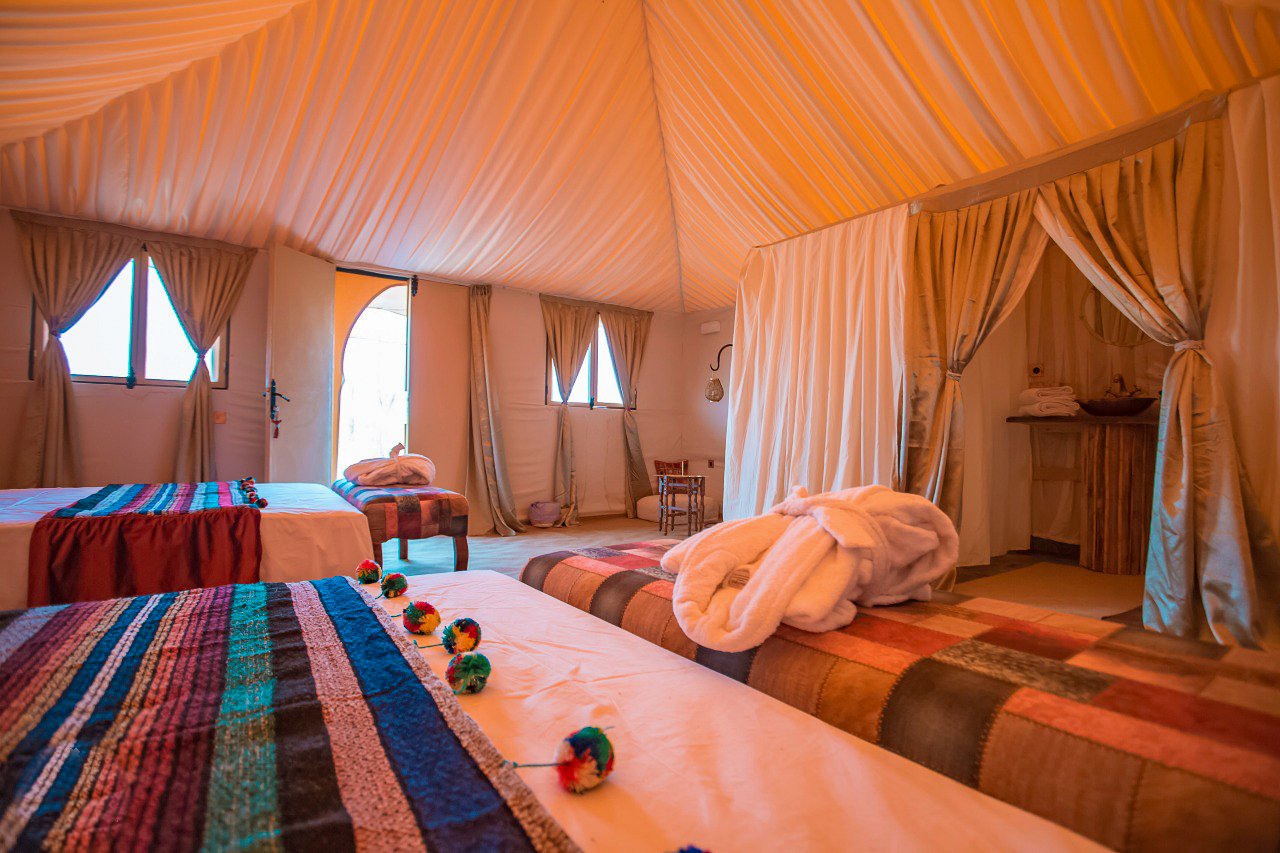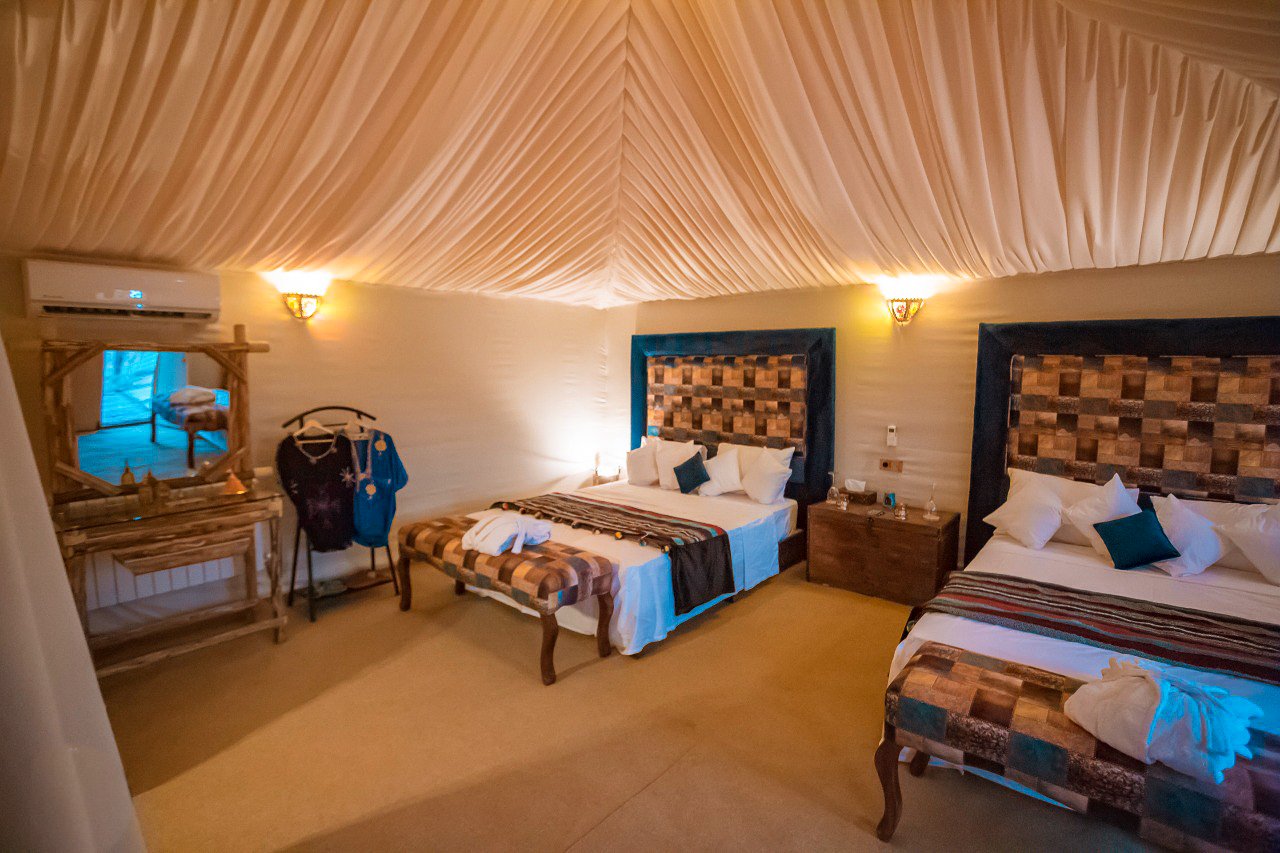Morocco: 11-Day Markets of Marrakech, Ancient Ruins & the Sahara Desert
2026 | 2027 Experiences: Custom dates available from March to May and September to October
Explore many of the dramatic contrasts this beautiful land has to offer during your visit to Morocco. Vibrant markets, snow-capped mountains, sacred mosques, ancient fortified cities and vast desert dunes will be the setting as you discover the many interesting cultures, cuisines and unique natural settings that make Morocco such a wonderful country to visit.
-
Experience the sights and sounds of Jemaa-el-Fna, an ancient and vibrant market in the heart of the old medina in Marrakech and a UNESCO World Heritage Site. Tour the market with local guides and after familiarizing yourself with the layout, take some time to explore on your own.
Caravan into the Sahara Desert for an overnight stay at a beautiful Bedouin camp. Enjoy an unforgettable sunset and sip on traditional mint tea under a blanket of stars as you've never seen them.
Explore the ancient fortified village Ksar of Ait-Ben-Haddou, a UNESCO World Heritage Centre and one of Morocco's most pristine examples of traditional architecture dating to the 11th century.
-
Day 1: Arrive in Marrakech
Arrive at Marrakech Menara Airport in the evening, meet your guide(s) and head to the hotel for a nice Moroccan dinner and a good night's rest.
Overnight: Hotel/Riad in Marrakech
Day 2: Marrakech to Ouarzazate
Start your adventure in Morocco with a hearty breakfast before hitting the road to your first destination at Ouarzazate. Known as the gateway city to the Sahara Desert, Ouarzazate has many interesting activities and attractions waiting for you to explore in the country’s High Atlas Mountains. Your expert guide will introduce you to some of the hidden gems of the area known for its desert landscapes that have appeared in many Hollywood films.
Overnight: Hotel in Ouarzazate
Day 3: Day trip to Ait-Ben-Haddou overnight in Ouarzazate
Today's focus will be the Unesco World Heritage Centre of Ait-Ben-Haddou. This medieval fortress located on the ancient trade route between Morocco and Sudan is one of the best-preserved examples of traditional clay architecture.
Overnight: Hotel in Ouarzazate
Day 4: Ouarzazate to Merzouga
Rise early for the day trip to Merzouga and enjoy scenic views of the desert along the way. Stop at the picturesque Todgha Gorge for a delicious lunch and to see the spectacular rock formations. Continue to Rissani to learn about jewelry created by the Amazigh (Berber) people before arriving at your accommodation in Merzouga.
Overnight: Hotel in Merzouga
Day 5: Sahara camel trek and overnight in the desertStart your day with a camel trek in the Sahara Desert, a bucket list experience for many travelers. With its western edge spilling into Morocco, the Sahara covers an area roughly the size of the United States. The mesmerizing orange and beige sand dunes and crystal clear sky will be the setting for your journey into the desert. Stunning sunrises and sunsets await as you spend your day with local Amazigh people learning about each other, drinking mint tea and gaining a unique understanding of life in this beautiful region.
Overnight: Bedouin camp in the desert
Day 6: Merzouga to the Dadès Gorges
After a peaceful night's rest, stunning sunrise and an easy morning, it's back onto camelback to caravan through the dunes back to Merzouga. After thanking our Amazigh guides and saying goodbye to our four legged friends, climb into 4WD’s for a beautiful journey to Dades Gorge through the stunning landscapes, ancient ruins and palm plantations.
Overnight: Hotel in Dadès Gorges
Day 7: Dades to Skoura
Visit Kasbah Amridil in the town of Skoura before a walk in the palm fields where you’ll learn about the local harvesting of the tree’s date fruits. Take the afternoon to relax at the hotel, reflect on your journey or sit sipping tea while you discuss what you’ve seen so far with your guides and friends.
Overnight: Hotel in Ouarzazate
Day 8: Skoura/Ouarzazate to Marrakech
Depart from Skoura/Ouarzazate and head into the scenic and beautiful Atlas Mountains through Tizi n'Tichka enroute to Marrakech. Stop along the way for photos of the breathtaking views and to learn about some of the important community projects currently underway. A portion of proceeds from your trip will be donated to our local partners initiative in supporting rural community efforts to connect drinking water to homes, access to education for women and children, and preserving local Amazigh traditions.
Overnight: Hotel/Riad in Marrakech
Day 9: Marrakech day tour
Explore the winding streets, ancient monuments and extensive array of vendors at Jemaa-el-Fna, an ancient market and UNESCO World Heritage Site. The mix of sound, colors, famous aromatic food stalls and many forms of entertainment is quite a pleasure. Visit a local NGO (weather permitting) to learn about some of the valuable community projects currently underway.
Overnight: Hotel/Riad in Marrakech
Day 10: Exploring Marrakech
Take a cooking class and learn about Moroccan cuisine, local spices and Amazigh-influenced cooking techniques. Enjoy what you prepared for lunch before heading out for a unique experience with a local hammam, a traditional Moroccan steam bath.
Overnight: Hotel/Riad in Marrakech
Day 11: Beslama (Farewell) to Morocco
After your breakfast, spend some time journaling or grabbing some last-minute souvenirs before heading to the airport. This day will depend on flight details.
*Itinerary days and activities are subject to change without notice due to unforeseen circumstances or events. See full terms and conditions for more information.
-
Checked luggage should be a duffle bag (rolling duffels are fine). Large square suitcases are sometimes difficult to maneuver through the crowded medina and may not fit well in the back of our vans. A few notes:
Morocco is a Muslim-majority country where many people dress conservatively. Most local women wear hijabs or headscarves, but you won’t be required to wear one. Unlike some countries in the Islamic world, headscarves are not required by law in Morocco. However, to respect local culture and customs, we ask that women not pack tight-fitting clothes, two-piece swimsuits, short skirts and shirts that show your shoulders.
Toilet paper may not be available in every public restroom you’ll encounter. Please bring a small roll of toilet paper to keep in your day bag.
Some travelers bring a second, empty, lockable bag folded into the main luggage. You can use this to carry home some of the things you acquire along the way. Also, when traveling with a friend, you can “bag swap” or pack two outfits of your clothing in your friend’s luggage and vice-versa, in case one bag is delayed. Up to you!
You will want to wear clothes that are comfortable. Wearing lightweight long sleeve shirts and pants will also protect you from the sun, dust and insect bites.
Footwear is also important. You may be spending a lot of time on your feet in Marrakech and Essaouira.
Clothes (one unless otherwise noted):
Comfortable pants - 2-3 pairs
Jeans
Long skirt or dress with sleeves
Knee-length shorts - 2-3 pairs
T-shirts - 5-7 pairs
Long-sleeved shirts - 3-4 pairs, for cooler evenings/mornings, protection from flies and mosquitos and sun protection.
Undergarments - one pair for each day of your trip (laundry may not be available)
Fleece/hoodie or jacket, for cool mornings and evenings, it can dip into the 40s overnight in the desert
Swimsuit
Rain jacket
Sneakers/comfortable shoes
Sandals or flip flops
Sunglasses
Refillable Water Bottle - 1 liter, Nalgene or CamelBak
Sun hat to guard from glare and to protect your skin.
Warm hat for those cool desert evenings
Headlamp with extra batteries
Sunscreen
Bug spray, 20-30% DEET
Note: Laundry service is available at times but is often unreliable.
-
11 days/10 nights of accommodation at beautiful and unique hotels
Private airport pickup and drop off and all transportation throughout the trip
All activities as detailed here (activities can be added at an additional cost)
Bottled water for your refillable bottle
Breakfast, lunch, and dinner each day (one to two dinners on own)
A local guide with you throughout the trip
Local support team on call 24/7
Contribution to local organizations and/or projects
What's Not Included
Travel Insurance
International flights, visa fees, and Covid testing (if applicable)
Alcoholic beverages (when available) and soft drinks
Personal expenses (phone, laundry, cabs, etc.)
Optional or added activities not mentioned in the itinerary
Tips to hotel, lodge, or tented camp staff
Gratuity for trip guides
-
Do I need a passport to travel to Morocco?
You must have a passport to travel internationally. When you book your trip with Off Cape Experiences, we ask that you submit a copy of your passport in part to verify whether it’ll be valid when you travel. To travel, your passport must be valid for at least six months after you return from your trip and has at least one (and probably more) empty pages.
Renewing a passport can take four months so if it doesn’t meet the above criteria, start the process immediately.
Learn more about how to renew an existing passport.
Learn more about how to expedite your passport renewal.
Learn more about how to apply for a first-time passport.
Make copies of your passport and keep one in a safe place not with your passport. This will come in very handy if you misplace it and need to get a new one.
Do I need a visa for travel to Morocco?
Visas aren’t required for U.S. citizens visiting Morocco for fewer than 90 days. Learn more by visiting the U.S. State Department website. Getting a visa before traveling will shorten the arrival process at Marrakech Menara Airport, but is not required.
Travelers from outside the U.S. with other passports should review entry requirements for your home country, or get in touch (link) and we’ll help you navigate this process.
What vaccines are required for travel to Morocco?
None if traveling from the U.S. However, we recommend reviewing the CDC Traveler’s Health page for Morocco, which recommends a number of vaccines, including childhood vaccines, COVID-19, Hepatitis A and B, Rabies and Typhoid. Please be sure to consult your doctor to decide what medicine is right for you.
In addition to vaccines, if you take prescriptions, please bring enough for the duration of your trip. Obtaining your prescriptions in Morocco may not be possible. Some other prescription tips:
Pack your prescriptions in their original, labeled containers. We suggest you pack them in your carry-on bag.
Be sure to bring enough contact solution and personal hygiene products for the duration of your trip. Ear plugs are also a good idea to have on your flight.
A personal First Aid kit is always a good idea to have on you when traveling abroad.
Is the tap water safe to drink?
No. Drink only bottled water. Do not drink water from the tap or a well. Your accommodations and guides will provide water for you to fill your refillable water bottles you bring from home or provide bottled water for you. Bringing a Nalgene or similar 1 Liter refillable bottle is highly recommended and promotes sustainable travel and respect for the places we are traveling.
In addition, routine hand washing before and after meals and after using the bathroom will cut down on your chances of getting sick. Although delicious and a great way to experience local culture, eating street food can also increase your chance of getting sick. Make sure to rinse any fruits or vegetables before eating.
Is it safe where we’re going in Morocco?
Morocco is generally a safe place to travel. However, using common sense is a must. You will be briefed upon arrival at each location. Listen to briefings from your guides and ask questions! Do not assume.
What’s the weather like?
Morocco is located in western Africa and across the Strait of Gibraltar from the southern tip of Spain. The weather varies by season and region. Cities on the Atlantic coast are hot and humid in the summer and warm and wet in winter. Inland cities experience desert conditions while the Atlas Mountains in the north can experience snow in January and February.
The weather in Marrakech is mildest from March to May and September to November with average daytime temperatures ranging from the 70s to 90s Fahrenheit. The temperature can drop significantly overnight so make sure to have some additional layers for evening activities. Expect conditions in Marrakech to be wet in winter and hot and humid in summer with temperatures reaching 100 degrees during the day.
In Essaouira, the weather is milder with average temperatures ranging from the 50s to 80s Fahrenheit. Expect the most pleasant weather in summer when Essaouira and its beaches are busiest.
Do I need to bring cash? How much?
You’ll primarily use cash when traveling in Morocco. Some of the bigger tourist shops and hotels will take Visa and Mastercard, but other than that, it is best to plan on using cash wherever you go.
Some additional info about cash and money:
ATMs are widely available and offer the best exchange rates, even when including fees from your bank.
Travelers Checks are not recommended as you will receive a lower rate of exchange and additional fees to use them.
Bargaining is acceptable when buying souvenirs in Morocco. How much you want to push it is up to you. Ask yourself what you would pay for that item at home, compare the price and find somewhere in the middle that is reasonable for both parties. Remember to keep a smile on your face and always be polite. It’s a good thing when both sides of the deal are happy.
Is tipping expected in Morocco?
Yes. You’ll be expected to tip your guides and service staff you interact with while traveling in Morocco. How much to tip is up to you, but please use the following as a guide:
Guides: 5 to 10% of the tour/activity price
Drivers: 100 to 200 dirham per day
Servers: 10% of the bill total
Hotel staff:
Manager: Up to 100 dirhams per day
Housekeeping staff: 50 dirhams per day
Cook: Up to 100 dirham per meal
Porter: 20 dirham for luggage assistance to and from your room
Should I bring my expensive digital camera?
Cameras are important pieces of equipment while traveling. if you want to record memories to revisit later. As for what type of camera or lens to bring, it’s entirely up to you. Whichever camera you decide to bring, be sure to become familiar and comfortable using it before departing for your adventure.
Photo etiquette is very important. The etiquette of photographing most people is about the same as it would be on the streets of your hometown. In general, you need permission to take a close-up, as you would at home, but not for a crowd scene. Be especially polite if you want to photograph a woman wearing a veil. If you want to shoot a portrait, show interest in your subject, and try to have a bit of interaction first. Then use sign language to inquire if a picture is OK. Your driver-guides can help.
Will my phone work in Morocco?
Probably, if you pay for it. Check with your provider for roaming rates and international data packages before traveling. These rates can pile up very quickly and be extremely expensive.
If you have a travel phone or a phone with a slot for an extra SIM card, you can buy a local SIM card with data for the duration of your stay. This usually ends up being the cheapest option, though not always the most convenient.
Do I need a power adapter to charge my devices?
Yes. It will be important to charge your devices each day when returning to your accommodation for the evening, especially your camera. You can find universal adapters or adapters specifically for the Type E outlet used in Morocco at online retailers. Adapters now come with USB ports and more than one outlet for charging multiple devices at once. Click here to learn more.
How will we get around in Morocco?
We work with a local transportation company that has a fleet of large vans for you to travel comfortably as we move about the country.
Map
Accommodation
In Marrakech, Ouarzazate and Skoura, your group will stay in riads, beautiful Moroccan hotels that include often lush open-air courtyards, or hotels. For your night in the Sahara desert, you’ll stay at a traditional Bedouin tented camp with comfortable beds, clean sheets and towels, pillows and blankets that will keep you warm during the cool desert nights.
From $3,995 USD + international airfare
Pricing is per person, based on double occupancy for a group of 4 or more people (only 2 people is also possible). An additional charge is applied for single occupancy. A 20% deposit is required to book travel. The balance is due 90 days prior to departure, or immediately if booked within that time period. Special rates may be available for group bookings. Questions? Fill out this form.

